Authors: Manuel Lafont Rapnouil, Tara Varma, Nick Witney
Published: December 2018
Summary
- Europeans remain unwilling to renew their thinking on nuclear deterrence, despite growing strategic instability. Their stated goal of “strategic autonomy” will remain an empty phrase until they engage seriously on this matter.
- This intellectual under-investment looks set to continue despite: a revived debate “German bomb” debate; a new Treaty on the Prohibition of Nuclear Weapons; and the collapse of the INF treaty.
- Attitudes to nuclear deterrence differ radically from country to country – something which any new engagement on the nuclear dimension will have to contend with. And, while many governments and their voting publics are aligned in attitudes, in some crucial players like Germany the government and public are at loggerheads.
- No European initiative to declare strategic nuclear autonomy is yet practicable but a strategy to hedge for future uncertainties is available.
- As a first step, the UK and France should convert the idea of a European deterrent from mere notion into credible offer, by thickening their bilateral nuclear cooperation and sending growing signals that indicate their readiness to protect others.
Introduction
The 29 July edition of Germany’s Welt am Sonntag hit newsstands like a bombshell. The weapon in question was painted in German national colours, and illustrated the front-page headline “Do we need the bomb?” Inside, the writer argued that: “For the first time since 1949, the Federal Republic of Germany is no longer under the US nuclear umbrella.”[1]
It is extraordinary that this question should arise so prominently in peace-loving, anti-nuclear Germany. But it is not before time. This year, the European Council on Foreign Relations conducted a comprehensive survey of attitudes towards nuclear issues across the member states of the European Union. Two overarching themes emerged. Firstly, despite the growing insecurity all around them, Europeans remain unwilling to face up to the renewed relevance that nuclear deterrence ought to have in their strategic thinking. Secondly, and as a consequence, national attitudes remain much where they were when the subject dropped off the agenda at the end of the cold war – which is to say, scattered across the entire spectrum from those who continue to see nuclear deterrence as an essential underpinning of European security to enduring advocates of unilateral nuclear disarmament.
This is hardly the only important challenge on which Europeans’ views are all over the place, and about which they would prefer to remain in denial. As one official told the authors, “Europe has not only outsourced its security, but also its security thinking”. But when set against the dramatic changes occurring in the international security environment, the results of this research demonstrate that there is now an urgent need for Europeans to think about, and debate, nuclear deterrence anew. A ‘German bomb’ is unlikely to prove attractive – not least to Germans themselves. Europeans must instead give serious consideration to whether a Franco-British ‘nuclear umbrella’ would be a possible and desirable complement to, or substitute for, the current US nuclear guarantee to Europe. This paper concludes that this issue is significant but belongs to a range of nuclear weapons-related topics with which Europeans need to re-engage.
Regardless of whether it proves viable to agree to a “nuclear Saint-Malo”, to borrow a phrase coined by a member of ECFR’s pan-European research team, one thing is clear: the situation is such that Europeans can no longer pretend that their declared ambition of “strategic autonomy” is more than an empty phrase unless they engage seriously on the nuclear dimension. The absence of a European deterrent may be a fatal flaw for such an ambition. Besides nuclear capabilities, there are many ways in which Europe can move towards its stated bid for strategic autonomy. But, without this, many Europeans will continue to believe that Russia will always hold the whip hand in any military confrontation with a Europe not backed by a credible US nuclear guarantee. And yet most Europeans’ approach to the nuclear dimension of a rapidly shifting strategic environment is to keep their eyes tight shut.
Darkening skies
Europeans are, of course, aware that their security environment is deteriorating. They know that the neighbourhood they once aspired to turn into a ring of friends has instead turned into something closer to a ring of fire. They know too that this violence has ventured into European territory in the form of terrorism. But Vladimir Putin’s Russia has also played a key role in European perceptions, as evidenced by the coincidence between the rise in European defence budgets and the war in eastern Ukraine that began following Russia’s annexation of Crimea. And with Donald Trump resident in the White House, doubts have risen about the United States’ commitment to Europe’s security, including through NATO.
The 2016 Global Strategy set strategic autonomy as the centrepiece ambition for the EU and its member states.[2] Though ill-defined, this concept nonetheless indicated that Europeans acknowledged the need to be readier to fend for themselves and, consequently, to do more on defence by standing on their own feet and reducing their dependence on the US. But the truth is that NATO and the accompanying US security guarantee were, and remain, the defining security frame for Europeans. The progress made towards a European Defence Union since 2016 has addressed only conventional capabilities and Europe’s defence technological and industrial base. In all these discussions and developments, European governments were all too happy to ignore nuclear issues almost entirely.
And yet the nuclear dimension of this security environment is obvious. A recent concerted diplomatic effort led to the adoption of the Treaty on the Prohibition of Nuclear Weapons (TPNW) at the United Nations in 2017. But this effort won no support from any of the current nuclear weapons states – whether those recognised by the Non-Proliferation Treaty (NPT) or the others. On the contrary, nuclear weapons have since gained further salience in Russia’s defence strategy, while the US has moved to a more “flexible” policy under its 2018 Nuclear Posture Review and its inclusion of low-yield warheads.[3]
At the same time, events in east Asia and the Middle East have increased worries about a rise in the number of nuclear states; and the risk of proliferation crises in Iran and North Korea has dominated the headlines at various times in the last year. The situation in both regions remains highly unpredictable. Europe is more or less absent from efforts to solve the situation in east Asia. And, although it is playing a crucial role in trying to keep the Iran nuclear deal alive, it faces a formidable challenge due to the US not only exiting the deal but also trying to prevent Europe from implementing its own non-proliferation strategy by threatening secondary sanctions on European companies.
In Europe itself, the crisis in Ukraine has given way to Russian nuclear sabre-rattling – through not just rhetoric but also the deployment of short-range nuclear-capable missiles to the Russian exclave of Kaliningrad, which borders two EU member states. This has further weakened a European security order to which the US and Russia have, in fact, been actively making changes for nearly two decades; the notion of an unchanging post-cold war order does not bear too much scrutiny. The US unilaterally terminated the Anti-Ballistic Missile Treaty in 2002, while Russia has likely violated the Intermediate-range Nuclear Forces Treaty (INF) by testing and deploying the SSC-8, a new and prohibited intermediate-range, nuclear-capable missile. Both powers have announced new plans to strengthen their strategic arsenals. Yet, although NATO statements have raised this issue, Europe scarcely seemed to act upon it until the US announced its intent to withdraw from the INF treaty.[4] When Russia deployed a new missile, the SS-20, in the cold war, the result was the Euromissile crisis. In contrast, Europeans have chosen to react to the appearance of the SSC-8 by looking the other way.
Trump has shown that he meant it when he described NATO as obsolete, even though Europeans are only slowly coming to terms with this fact. But even in the post-Trump era to come, the US may well fold up its nuclear umbrella.[5] For the moment, European governments continue to believe, or hope, that they can go on taking advantage of the comfort blanket of the post-cold war order. This is partly because they have fallen so far out of practice of discussing nuclear weapons issues with one another, not to mention with the public.
Of course, memories of the Euromissile protests of 35 years ago result in some governments turning a blind eye. Others really are wary of Russia. Some governments have begun to recognise the changing environment formally: for instance, the French armed forces ministry’s recent strategic review noted the emergence of a “nuclear multipolarity”, the growing risks associated with the “deconstruction of the security architecture in Europe”, and the strategic “unpredictability and ambiguity” that come with it.[6] But most European leaders still shy away from opening up what they fear could be a Pandora’s box of difficult questions and possible political opposition.
Silence above, ignorance below
European attitudes are a patchwork of opinions: the United Kingdom and France are nuclear powers in their own right, with public opinion more or less solidly behind this status. The historical experience of Poland and the Czech Republic leads these states to be more confidently supportive of nuclear deterrence. Countries such as Denmark, the Netherlands, and Germany have seen civil society clash with their governments’ decisions around hosting nuclear weapons. Ireland and Austria are active campaigners for the abolition of nuclear weapons.
Despite all this, most EU member states have two things in common in this matter. First, nearly all of them share an official, if ostensible, commitment to reducing nuclear weapons: research for this paper revealed that only three member states harbour reservations about the goal of nuclear disarmament. This is all while many of these countries remain within NATO, which is of course underpinned by the potential of nuclear-backed intervention via Article 5. The potential tension between this pro-disarmament stance and the enjoyment of the US nuclear umbrella is something yet to fully play out.
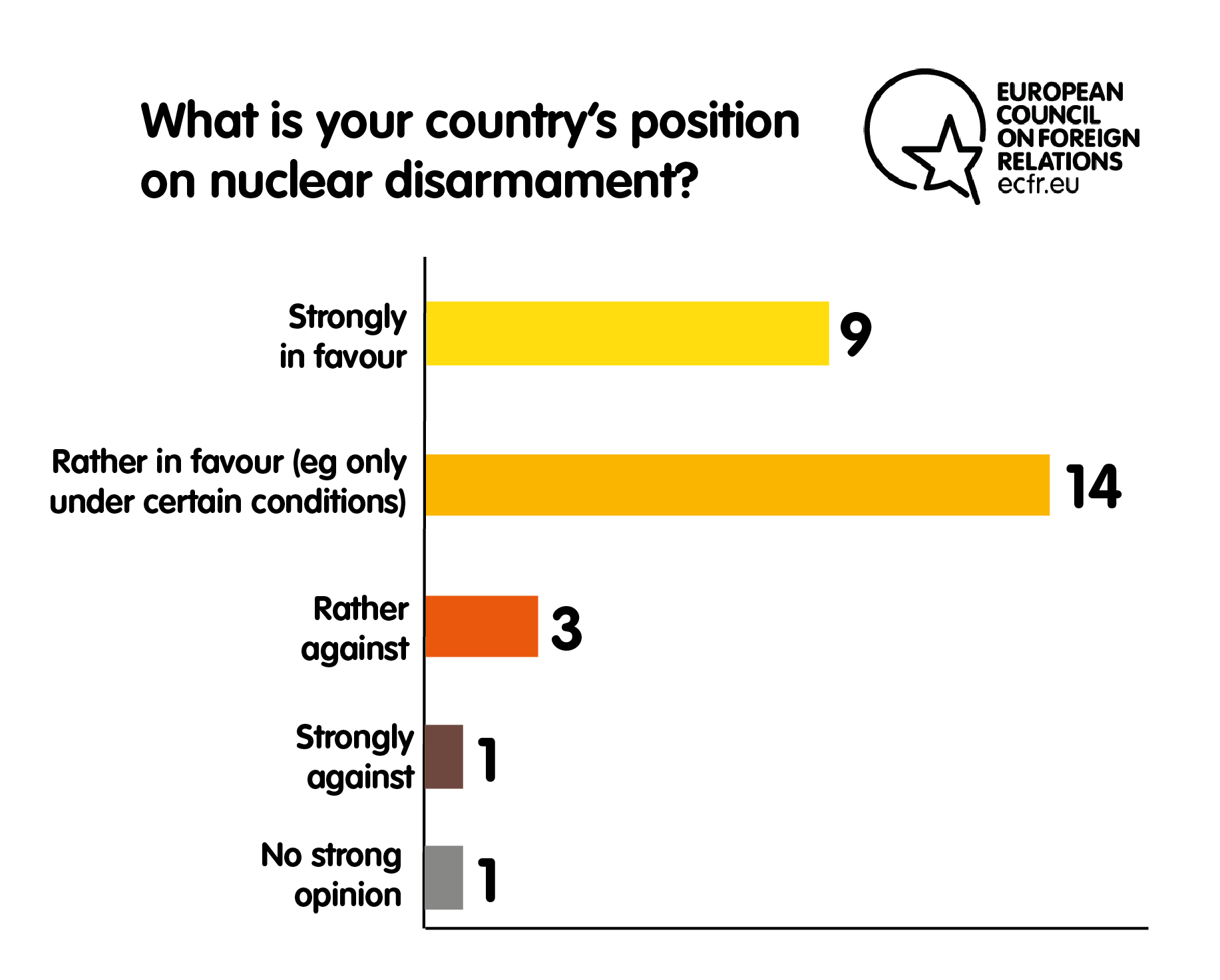
Second, nuclear weapons have little salience in the public imagination. On the occasions in the late cold war period when European governments were obliged to make difficult decisions about nuclear weapons, these became fraught and contested in the country at large as well as in parliament. But with the disappearance of the Soviet threat, Western governments and populations became less obliged to think, and argue, about nuclear weapons with the degree of heat and rigour that they had had to prior to 1989. In Europe, most were more than content to enjoy the happier and more hopeful international environment, and to simply dismiss nuclear worries from their minds. Rather than peace underpinned by nuclear weapons, as many cold war leaders characterised it, Europeans began to enjoy peace with nuclear weapons still around. Nuclear weapons disappeared from the public debate. The end of the cold war led to an effort to reduce the total number of nuclear warheads in the world, with Russia and the US doing substantially more heavy lifting in this regard even if they still possess considerably more weaponsthan France and the UK, which have both moved significantly towards minimal deterrence.
If anything, the public today is rather inclined towards disarmament – which may partly explain its relative lack of concern as the total number of weapons in the world fell, although it is hard to say that Russia and the US won many plaudits for their efforts either. If a shift in public attitudes does now come about, this may emanate from high-level activism. In the context of the TPNW, the decision to award the 2017 Nobel Peace Prize to the International Campaign to Abolish Nuclear Weapons hints at a new wave of abolitionism. This also finds stronger expression in national politics: last year’s German federal election saw the Social Democrat challenger for chancellor promise the removal of US nuclear weapons from the country. And, in the UK, a unilateralist disarmer is now leader of the Labour Party and Scotland’s ruling Scottish National Party is firmly opposed to nuclear weapons.
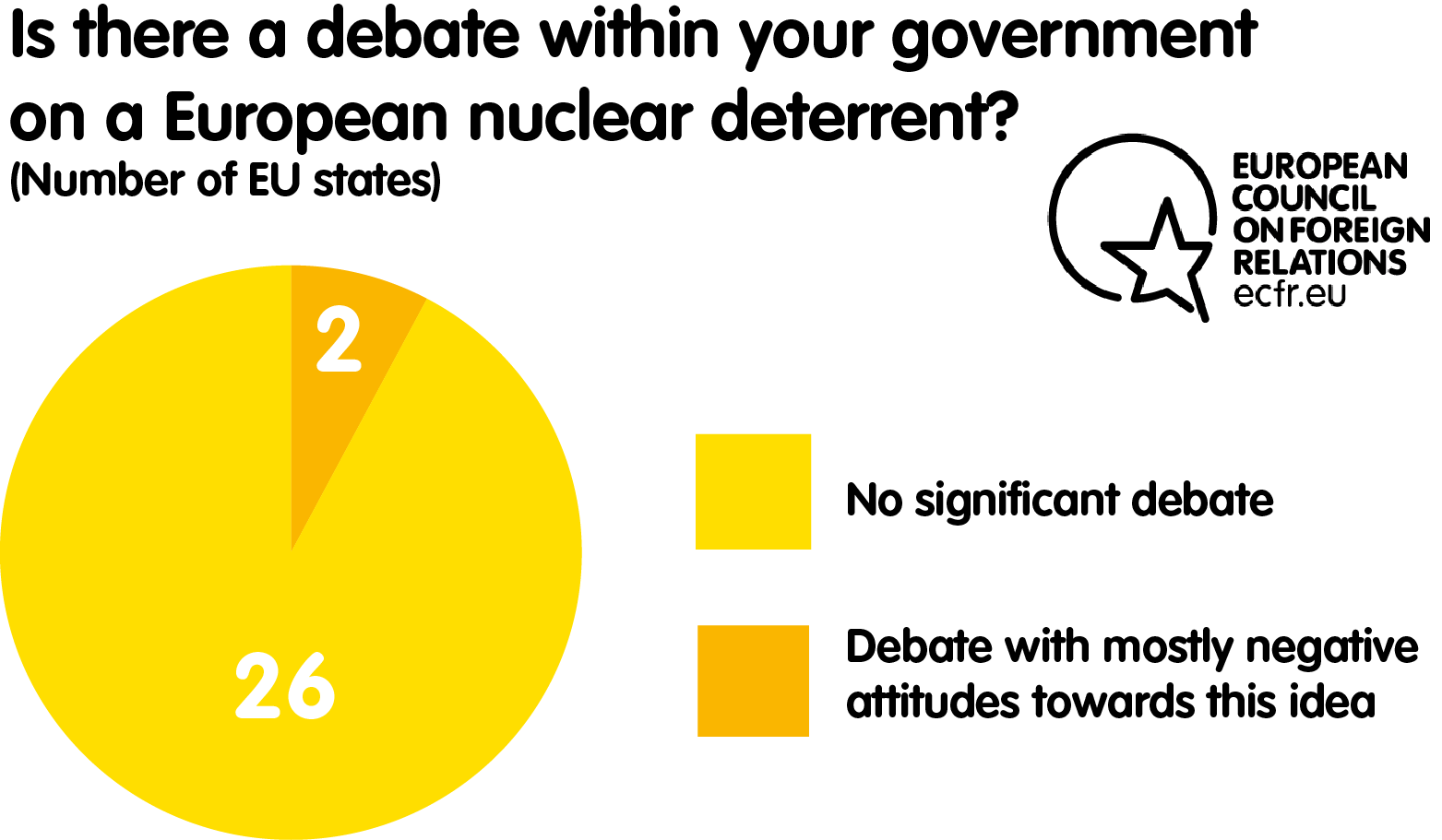
The current fraught and unstable international environment has not led the wider public to fret about nuclear issues – yet – nor for their governments to take the lead on this. The disconnect between public leanings and government policies appears to have induced governments to keep discussion of nuclear matters low key. If this is the case, it seems to have worked. But Europe probably has the ingredients for popular opposition to nuclear deployments to emerge once again.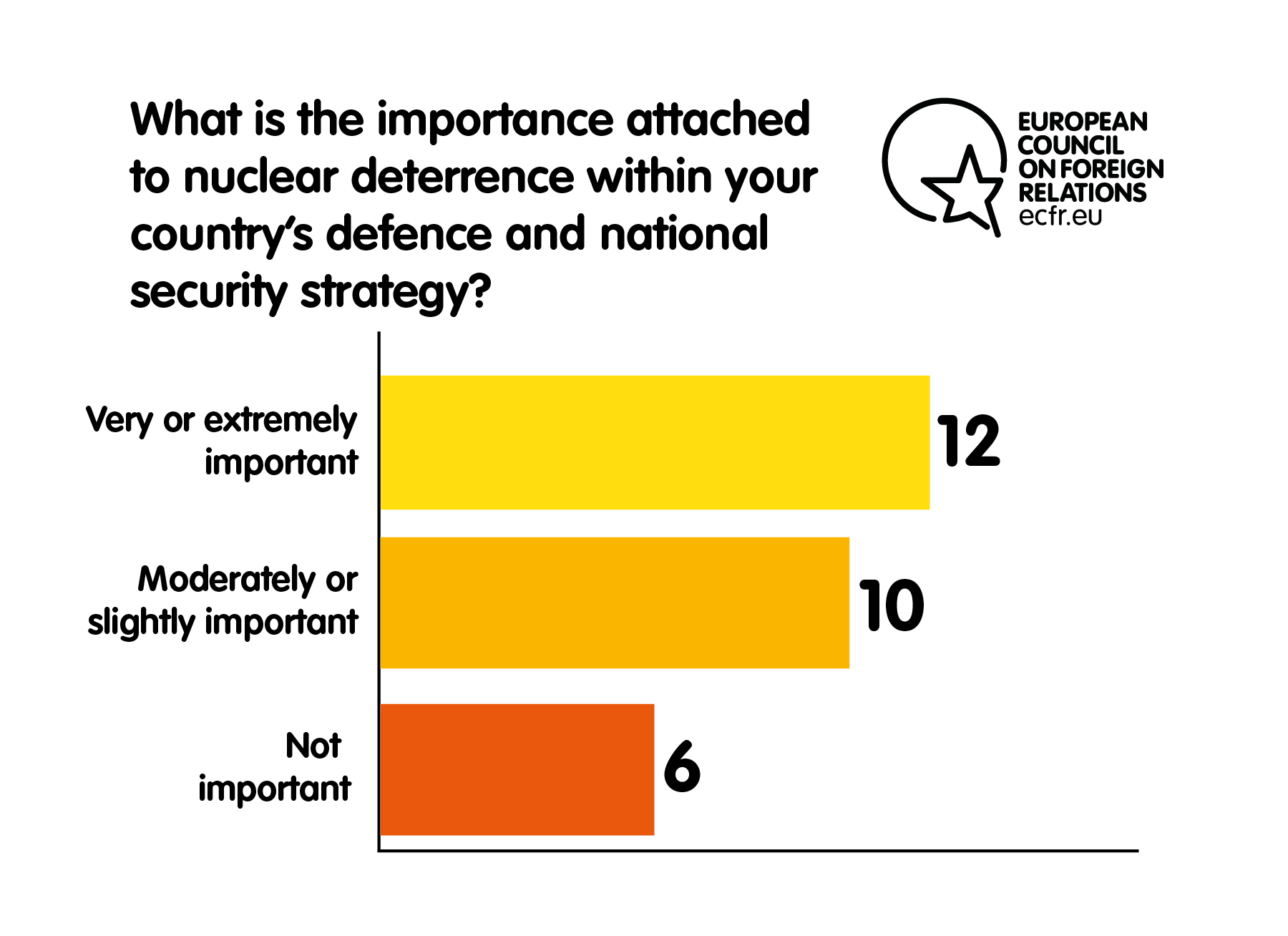

Europe’s nuclear families: cousins and rivals
To understand the situation better, ECFR’s network of 28 associate researchers carried out investigations into European attitudes towards nuclear weapons. These comprised interviews with more than 100 policymakers and analysts, and research into policy documents, academic discourse, media analysis, and opinion polls. The research questions centred on what countries today think of nuclear deterrence, how they assess nuclear threats to their own security, and what action they are considering in response. The data reflects what officials and experts believe to be the position of their respective countries on these topics. The country-by-country analyses are contained in the annex.
Perhaps the most striking finding of the survey concerns the immutability of attitudes across Europe. Most, if not all, European countries see recent events as proving their traditional attitudes right. They conclude that, despite the changed environment, there is little need for further reconsideration of their position on nuclear matters. This, therefore, provides little impetus for governments to break their silence and dispel public ignorance.
EU member states continue to span the full spectrum from committed nuclear powers to determined abolitionists – and they fall into five groups depending on their attitude to nuclear deterrence: True Believers, Neutrals, Conflicted,Pragmatists, and Conformists.
At one end of the spectrum lie the True Believers: France and the UK, accompanied by Poland and Romania. The first two are nuclear weapons states, and plan to stay that way: even with an avowed unilateral disarmer leading the opposition, most Labour members of parliament backed the renewal of Trident in a 2016 vote. Since the end of the cold war, France and the UK have modernised their nuclear arsenals while also pursuing reductions in their size under doctrines of minimum deterrence. Each has also limited where its weapons are deployed.
Poland and Romania also belong to the True Believers camp because they are greatly preoccupied with Russia and are active in seeking out reassurance from the US and even increased physical presence on their soil from the superpower. Both countries host a rotating brigade and elements of NATO’s missile defence system, and Poland recently offered to pay for a new US base – “Fort Trump” – as part of a bilateral arrangement. That said, these countries’ commitment to nuclear deterrence does not involve hosting US nuclear weapons on their territory.
All four countries rank nuclear threats as important in their strategic assessments and have also determined that nuclear deterrence should play an important part in their defence and national security strategy. In addition, unlike others that may share this approach, such as Germany, public opinion in their countries is behind them, meaning they are not conflicted about their commitment to nuclear deterrence.
At the other end of the spectrum are the Neutrals: Ireland, Austria, Malta, Cyprus, and Finland (all non-NATO members of the EU). The first two pride themselves on their anti-nuclear tradition: over the last few years they proactively sponsored the TPNW at the UN and signed it. One of Ireland’s five stated core foreign policies is to achieve a world free of nuclear weapons in addition to promoting disarmament.[7] Austria has been even more active on this front: it ratified the TPNW in May, and it has also been a vocal and intransigent supporter of the abolitionist agenda, holding the view that only a generalised abandonment and condemnation of such weapons can halt their proliferation.[8]
Malta and Cyprus have traditions of non-alignment, as well as friendly relations with Russia. They forgo reliance on nuclear deterrence in their defence policy, and they also voted in favour of the TPNW at the UN, although they have not yet signed the treaty.[9] But they contrast with Ireland and Austria because of the activism displayed by the latter two countries.
_(2).png)
Finland, also non-aligned, has grown closer to NATO in recent years but the nuclear threat is not a priority in its strategic assessment of its environment. Consequently, deterrence remains marginal to Finland’s defence strategy. Still, it strikes a more moderate pose than others in the Neutrals group when it comes to the abolitionist agenda: Finland did not take part in the TPNW vote and has declined to sign the treaty – determined, it seems, to avoid any position at all on nuclear issues beyond support for the NPT. To some extent, Finland could be considered in a category of its own, based on the fact that it is so resolutely self-contained.
As another historically neutral member of the EU, Sweden voted in favour of the TPNW at the UN. Yet if the Neutrals in this typology have taken their positions with minimal domestic controversy, nothing could be less true of Sweden – which, therefore, joins the Netherlands, and Germany in the Conflicted group.
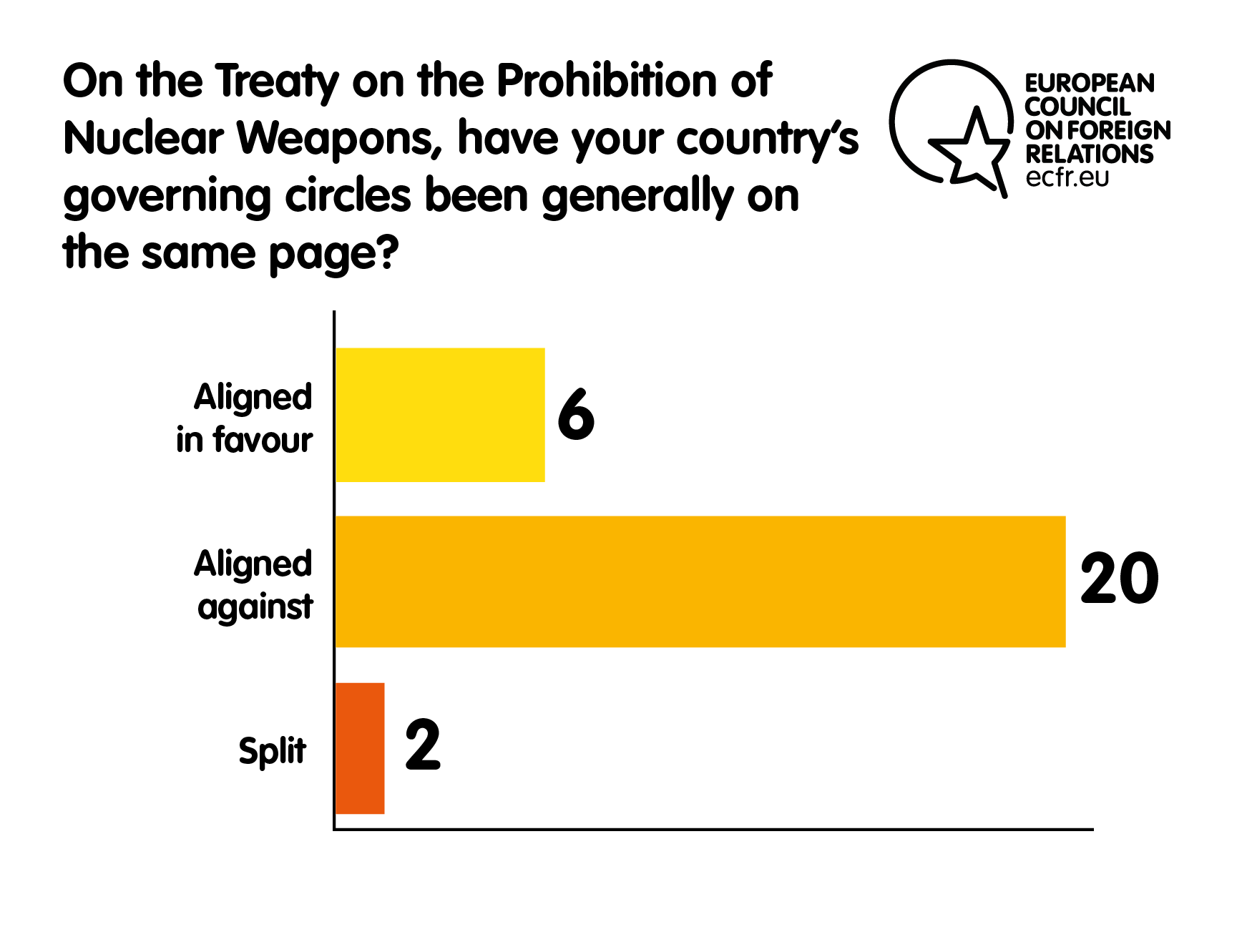
In all these countries, civil society is actively organised and critical of nuclear weapons, while votes in the national parliament reflect a deeper level of controversy over the nuclear issue among the wider public. In Sweden’s case, growing worries about Russia and increasing defence cooperation with the US and NATO have clashed with its cherished ‘peace’ tradition. This has led to open splits within the government over its signing of the TPNW, and to the creation of a special commission to review the arguments for and against acceding to the treaty.
Similar tensions caused the Netherlands to break NATO ranks by engaging in the TPNW negotiations, under pressure from the Dutch parliament – only to then vote against the treaty. There are further difficulties ahead for the Netherlands as it will soon need to replace its fleet of F16s (see box). In 2012 its parliament voted that the replacement aircraft should not be nuclear-capable, putting in doubt The Hague’s ability to continue to be part of NATO’s nuclear-sharing arrangements.[10]
Meanwhile, in Germany, the public has long been overwhelmingly hostile to NATO’s nuclear policy, but German governments have traditionally supported it. Despite its familiarity with this tension, Germany’s upcoming decision on a dual-capable Tornado replacement will not be straightforward. This is all the more true now that key figures in government, including the chancellor, are challenging the traditional exclusive dependency on the US strategic umbrella.
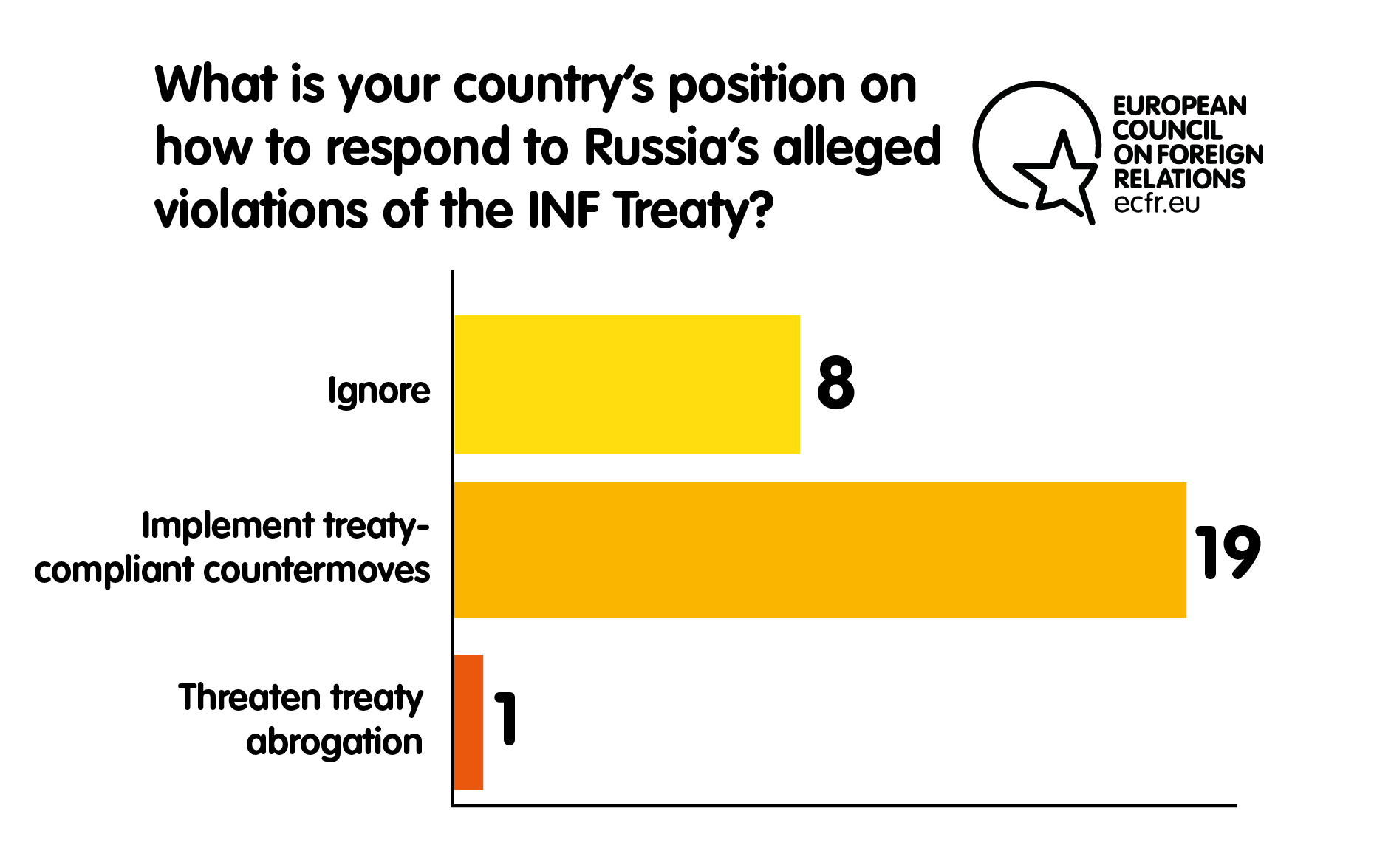
Tough decisions ahead: Nuclear burden-sharing and dual-capable aircraft renewal
Four European countries keep US free-fall nuclear bombs on their territory, for delivery by their own aircraft: Belgium, Germany, Italy, and the Netherlands. This long-established arrangement is part of NATO’s doctrine of ‘nuclear burden-sharing’ – the idea that nuclear risks and responsibilities should be shared, to demonstrate alliance solidarity and to make the alliance’s deterrent threat more credible.
The dual-capable aircraft involved in this nuclear-sharing mission all need replacement in the near to medium term. This means that Belgium and the Netherlands (which currently use F16s), and Germany and Italy (which use Tornados), will not only need to acquire new aircraft, but also to include special wiring in a proportion of the replacement national fleets to make them dual-capable – that is, able to deliver both nuclear bombs and conventional munitions.
The US is making dual-capable as well as conventional F35s for its own national purposes and is keen for European nuclear burden-sharers to buy this aircraft.
The acquisition of F35s is, in any case, a real bone of contention from the standpoint of Europe’s growing preference for fostering its own defence technological and industrial base. But the dual-capable issue is creating problems of its own. Italy and the Netherlands have already decided to procure F35s, while Belgium and Germany have not made their decision yet. But even the former pair have not publicly made known their choice concerning the ability of these aircraft to carry nuclear weapons. Among the latter, the Dutch parliament has voted against such a move.
The remaining 16 EU member states are all NATO members. They subscribe to NATO policy on nuclear deterrence, and they all followed the NATO line on the TPNW, which was to dismiss the proposed treaty as unrealistic and potentially damaging to the NPT. But these member states exhibit differing degrees of conviction, reflected in their rough segregation into two further groups.
The first of these is the Pragmatists. These are: Estonia, Lithuania, Latvia, Bulgaria, the Czech Republic, Belgium, and Italy. The five central and eastern European states in this group share, to varying degrees, a matter-of-fact acceptance of the importance of the nuclear element in NATO’s strategy. This is largely due to their distrust of Russia (they have other reasons for this too). Belgium’s future as a nuclear burden-sharer is not in doubt, though it too faces a dual-capable aircraft decision that will be difficult for defence industrial and political reasons. Italy too will remain a burden-sharer as it has already opted for the F35: the advantages of positioning itself as a staunch US ally take precedence over the widespread view that Russia need not be a threat if Europe handles it properly.
This leaves the final, and largest, group: NATO states that are less concerned with nuclear threats than some other European countries are, and that look on deterrence as of only limited importance to their defence. For them, going with the NATO flow is the easiest and most advantageous course. They are the Conformists: Croatia, Slovakia, Slovenia, Hungary, Greece, Denmark, Luxembourg, Spain, and Portugal. Each country, of course, has its own national attitudes. At one end of the spectrum, Croatia is fundamentally unconcerned about nuclear issues, but it is worried by Russian activities in the Balkans. Denmark, meanwhile, combines a traditional Nordic nuclear aversion with tough-minded Atlanticism. But all belong firmly in the mainstream of European countries that would be happy if agreed NATO language on nuclear policy was rolled over indefinitely.
Shaping the nuclear question
ECFR’s research sheds light on the issues that contribute to each country’s overall view of nuclear deterrence. All are live matters that are actively shaping opinion among both governments and the public: Russia; the reliability or otherwise of the US nuclear security guarantee; proliferation crises; nuclear disarmament; missile defence; and NATO.
Russia in Europe’s threat perception
The survey results confirm that the perception of Russia as a threat plays a significant role in influencing the nuclear stance of most EU states. It comes as no surprise that EU member states are divided on their strategic assessment of Russia. But there is a diversity of attitudes even between those that have a similar threat perception. Those that see Russia as a threat, irrespective of its nuclear power status, tend to cluster at the more hardline side of the spectrum, either as True Believers or as Pragmatists. At the other end, those that do not see Russia as a threat feature strongly among the large Conformist group. And it makes sense that those who support the abolitionist agenda come from traditionally neutral states. But there is no clear link between a country thinking Russia a threat and Russia’s possession of nuclear weapons; there are countries in all groups that agree it is a threat in this way but disagree on how to respond.
Studying member states’ views on what constitutes the greatest threats further reveals the diversity of Europeans’ attitudes and perceptions. Russia’s nuclear arsenal is the top concern of 11 member states and a leading concern of several others. Most of these member states are True Believers or Pragmatists. These same states also agree that the imbalance between the reported numbers of US non-strategic nuclear weapons – 200 – and those of Russia – 2,000 – is a threat, while half of member states do not see this as a threat at all. But, overall, most member states do not see Russia as their top concern from a nuclear threat perspective. Instead, proliferation is their main concern.
Three of the four True Believers (France, Poland, and the UK) consider nuclear threats to be a priority relative to other – conventional and non-conventional – threats. But this is also the case for other countries: Sweden considers nuclear threats a priority, which is what drives it towards its Conflicted neighbours.
Ireland and Austria, members of the Neutrals group, overlap with Estonia and Latvia – Pragmatists – in the sense that they all agree that there is a threat from Russia that is amplified by its possession of a nuclear arsenal. The difference between them resides in the fact that the former consider this to further support their case for nuclear abolition while the latter insist that NATO deterrence plans should take into account scenarios involving the use of tactical nuclear weapons by Russia. Countries that consider nuclear threats to be less important than other types of threat feature strongly among the Pragmatists and the Conformists.
Trump: not the game-changer
Trump’s arrival in the White House as the first “America First” president in decades, and certainly in the NATO era, might have increased European insecurities to the point of prompting Europeans to consider shouldering more responsibility for their own defence – and consider too that doing so might include a nuclear dimension. This has found a voice in some quarters: key US allies have raised the issue publicly since Trump’s election. In 2017 in Poland, Jaroslaw Kaczynski expressed support for the idea of a European nuclear power, only to lament that he did not think it would happen.[11] The year before, Bundestag member Roderich Kiesewetter remarked: “if the United States no longer wants to provide this guarantee, Europe still needs nuclear protection for deterrent purposes”. He also raised the notion of a Franco-British nuclear umbrella for Europe financed through a joint European military budget.[12] The Bundestag subsequently commissioned a review that determined that Germany could legally finance the British or French nuclear weapons programmes, and accept such weapons on German soil, in exchange for their protection.[13]
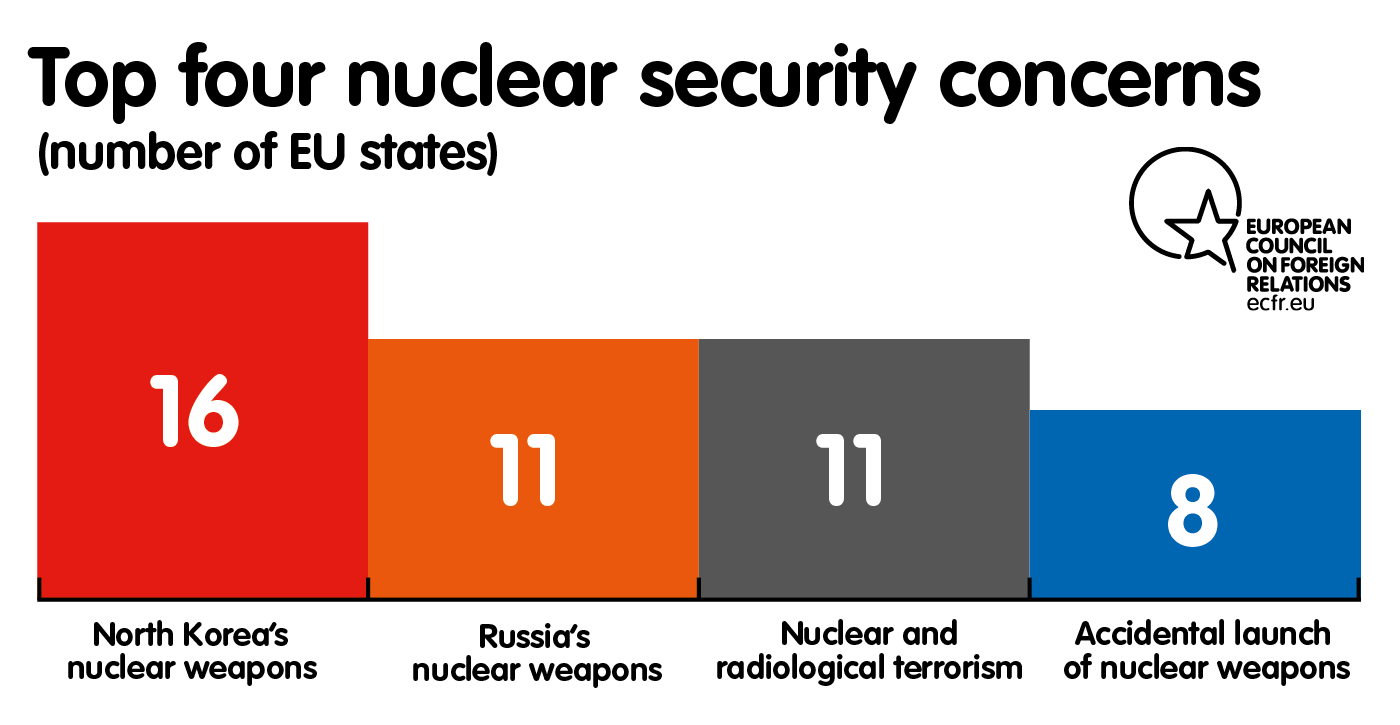
Seven EU member states – four of them NATO countries – believe that the US nuclear security guarantee has become less credible under Trump. This includes two states from the Conflicted group, Sweden and Germany, as well as France – unsurprisingly, given that France never accepted total reliance on the US umbrella, and based its policy of a national and independent deterrent on such doubts. The survey nevertheless shows that no fewer than 22 member states – all of them NATO members – believe that the US guarantee remains credible. Three – Estonia, the UK, and Poland – even believe it has become more credible, perhaps judging that the new unpredictability of the guarantee will act as an added deterrent.
Doubts about US commitment to the alliance are nothing new, in any case. Europeans may yet still need to face the prospect of the US failing to fulfil its Article 5 obligations. But Trump’s arrival has done next to nothing to jolt Europeans into more substantive thinking about nuclear and other strategic matters.
Proliferation crises and other nuclear concerns
Non-proliferation was always an issue EU member states were able to agree and act on. The role of the E3 (France, Germany, and the UK), of the EU high representative, and of EU sanctions in managing the crisis around Iran’s nuclear programme and in reaching the July 2015 agreement with the Iranian government illustrated this.
Non-proliferation remains an area of concern, as well as of consensus. At the time that ECFR conducted its research (before Trump withdrew the US from the Iran deal), several countries spread across the five groups – ranging from Portugal and Ireland to Germany – named the situation on the Korean Peninsula as their top nuclear-related concern. In contrast, the situation in the Middle East caused less worry among most Europeans: no member state named it as its top priority.
This commitment to non-proliferation helps explain why member states see any merits of nuclear weapons in the European security context as not applicable to other parts of the world. Two-thirds of EU countries believe that nuclear deterrence makes Europe more or even “much more” secure, and nearly half think that this benefits the rest of the world as well. But the same logic does not appear to apply to other regions: a plurality of member states fear that local nuclear deterrence makes the Middle East and Asia less or even “much less” secure. As a consequence, most member states believe that the EU should continue trying to resolve major proliferation crises – including that on the Korean Peninsula, where Europe has had a limited role so far. Just a small minority believe that the only meaningful thing that Europeans can do, if anything, is to support the US.
Still, it is important to note that proliferation crises are not the only source of concern in Europe. In addition to Russia, another consistent top priority of nuclear-related security concern across Europe is nuclear and radiological terrorism. This is a particular concern for Conformists (Portugal, Slovenia, Slovakia, and Spain) and Neutrals (Austria and Cyprus). The risk of a nuclear military accident generates some concern among Neutrals (Malta and Finland). Few cited the Middle East, tensions in south Asia, or China’s development of its military nuclear programme as key worries.
Attitudes towards nuclear disarmament
In contrast to non-proliferation, disarmament has long been a more problematic issue for Europeans – due not least to the ambiguity of the term. Does it mean mere reductions or full abolition? With the renewal of abolitionist efforts under the banner of the TPNW, this uncertainty has now turned into a strong divergence between member states.
The survey confirms that a clear majority of member states are in favour of nuclear disarmament, at least in principle. This includes the nuclear-armed states, the UK and France. This consensus holds when it comes to what the next steps should be on disarmament: countries point to a variety of specific measures, including the entry into force of the Comprehensive Test Ban Treaty (CTBT), which has the support of two-thirds of member states. Half of member states support the negotiation of a Fissile Material Cut-off Treaty (FMCT), a goal endorsed by common EU positions, as a priority. That said, despite general support for moving towards disarmament, there is no consensus on what the next step should be. This likely reflects the low level of debate on this issue, but also points to a barrier to making genuine progress on this front.
Perhaps somewhat surprisingly, EU countries are not quick to pass the buck solely to the US and Russia: support for a new round of reductions in both strategic and non-strategic weapons lags behind other available options, such as the CTBT and the FMCT, and reductions shared across all nuclear powers. Of the two nuclear weapons states, the UK is particularly in favour of reductions involving all states – likely out of a preference for multilateral rather than unilateral disarmament – while France joins the majority in supporting rules-based measures (such as the treaties) rather than arsenal reductions.
Reservations begin to show, and divisions to appear, on whether the current global security environment allows for total and/or unilateral disarmament. No issue reveals this better than the fierce debate around the TPNW, which is the most divisive nuclear issue within the EU at the moment. The problem is not so much that member states are split: only Austria, Ireland, Malta, Cyprus, and Sweden voted in favour of it at the UN (Finland abstained), while just Austria and Ireland signed it, and Austria alone ratified it. But this issue has polarised and effectively locked down discussions on disarmament at the EU level. As NATO members disagree with Neutrals on the issue, the alliance’s official response to the treaty has been that nuclear disarmament should happen in a “step-by-step and verifiable way” and “on the basis of reciprocity”. Rather than creating “the conditions for a world without nuclear weapons”, NATO said, the treaty risks undermining the current non-proliferation regime.[14]
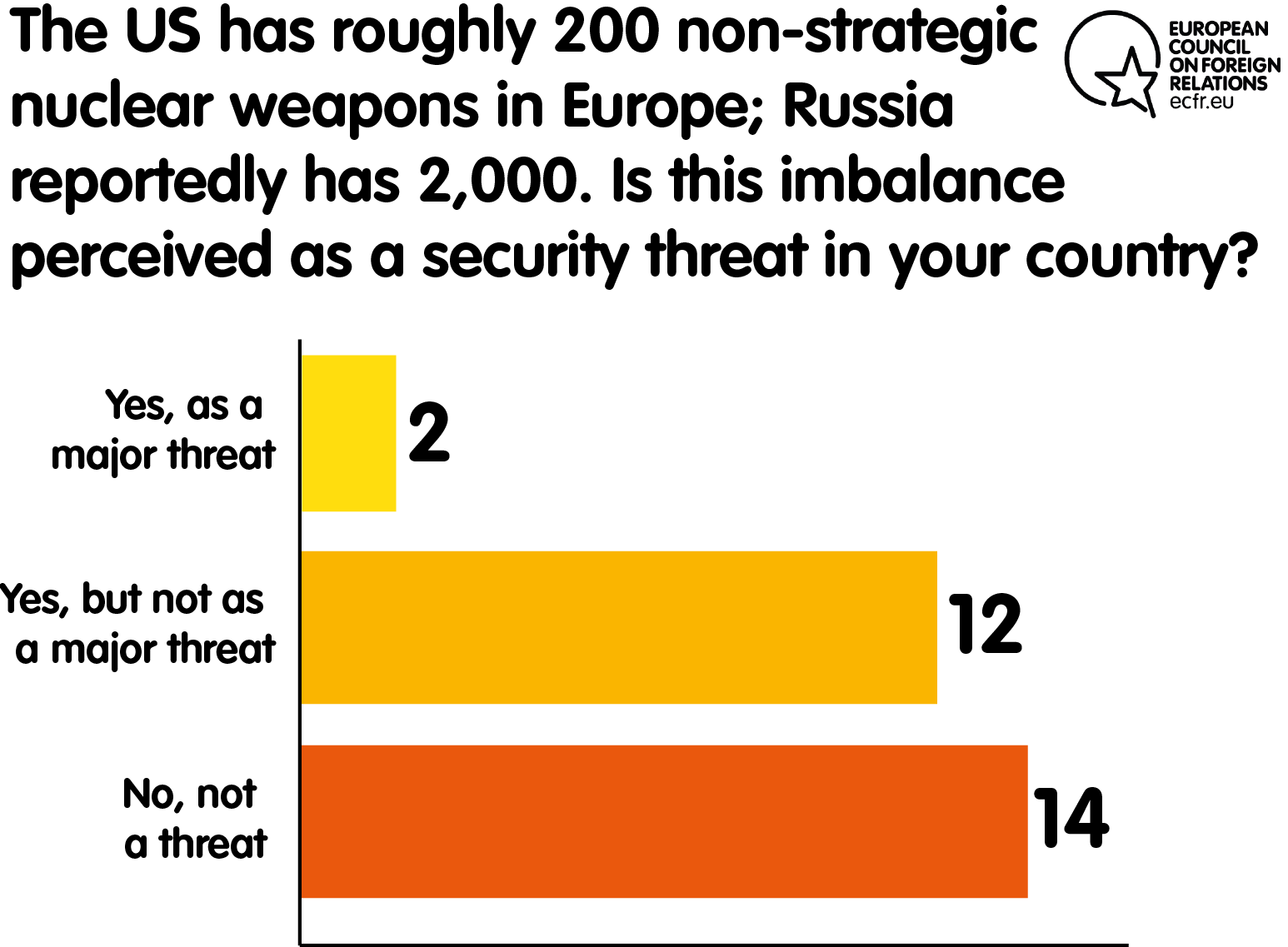
Missile defence
US engagement with Europe has actually deepened in one respect: through the construction – already under way – of missile defence infrastructure. As then US president Barack Obama decided to scale this programme back, its rollout attracted less controversy than it might have done. But the trend has reversed under Trump, and the programme is now in full swing in Poland and Romania.[15]
Despite Europeans’ traditional ambivalence on this issue, the survey shows that a majority of member states are supportive of missile defence deployments in Europe. Only Malta and Ireland believe that it is strategically destabilising and likely to provoke Russian countermeasures. And, despite the risk of their deterrent ultimately being compromised by effective strategic missile defence, the UK, and even France, have still joined the ranks of countries that are supportive of the programme.
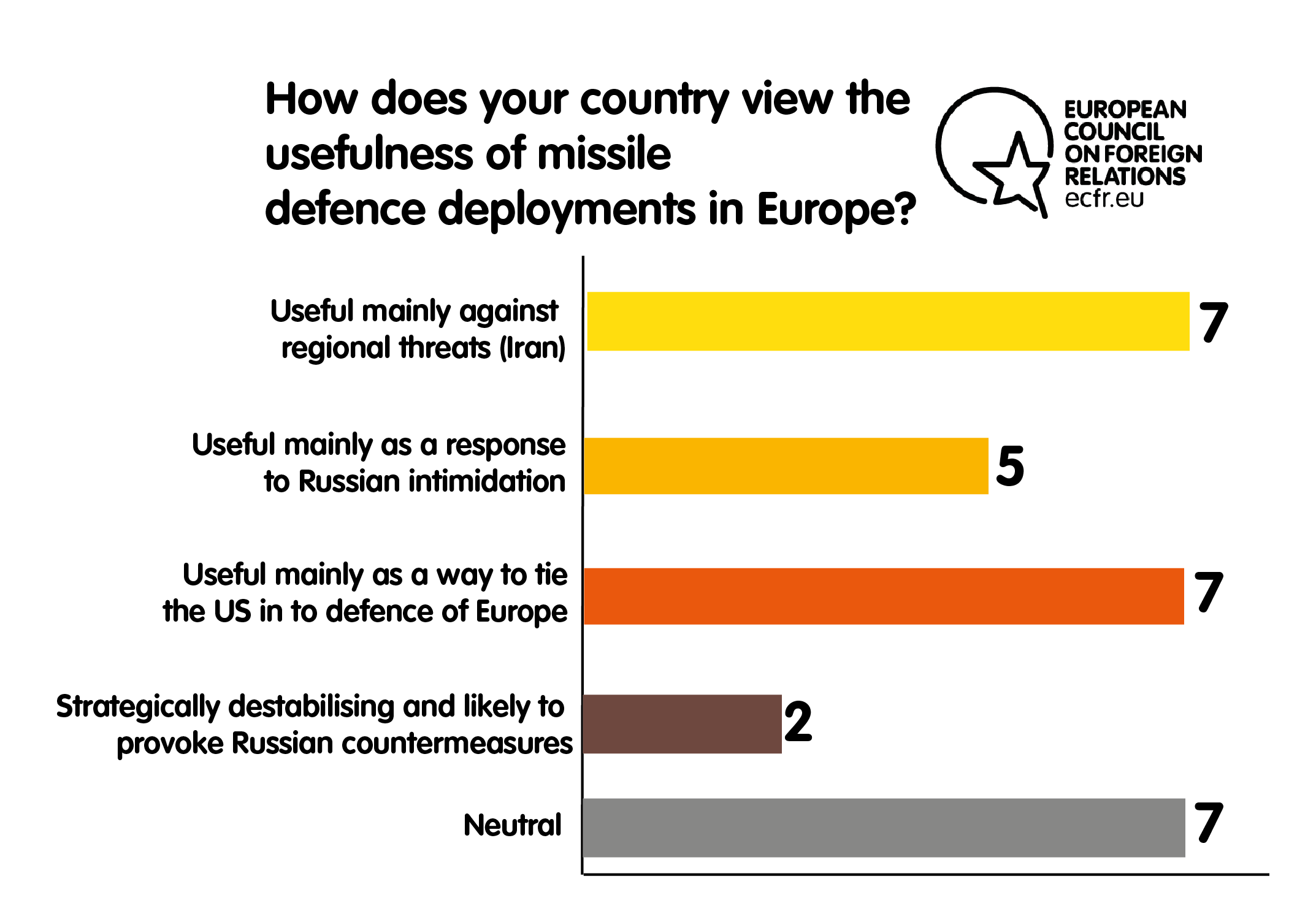
But the reasons for this support provide yet another hint at Europeans’ lack of strategic cohesion on these issues. A plurality of member states stick to NATO’s official rationale that it needs these defence systems to counter potential regional threats. But an equivalent number of countries (coming from both Pragmatist and Conformist ranks) admit that they find such missile defence systems useful first and foremost as a way to tie the US to the defence of Europe. And a smaller but similar number of them believe missile defence is useful mainly as a response to Russian intimidation. This group includes Poland and Romania, which are both True Believers and play a key role in the deployment of the new system.
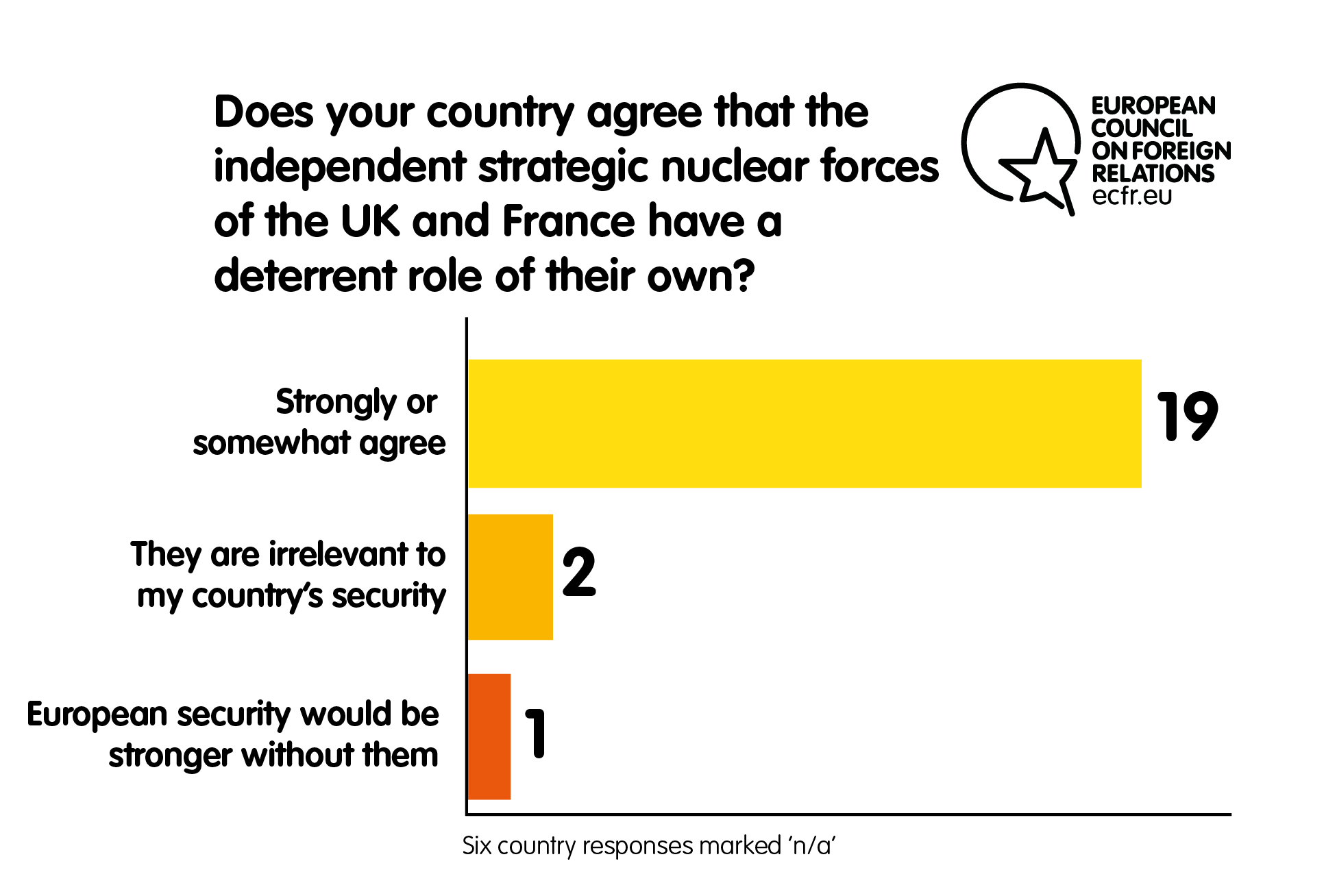
NATO
The vast majority of member states agree that nuclear deterrence is central to NATO; indeed, ten member states hold that this has become even more important in the current climate. Those that agree that the nuclear dimension is “problematic” all belong to the Neutrals group.
For NATO members, national positions are primarily influenced by consultations and decisions through the alliance (and, consequently, by the US) rather than by consultations with other European partners. The difficulty of reaching common EU positions reinforces this pattern. For instance, as noted above, NATO played a key role in encouraging its EU members to oppose the very notion of a treaty that seeks to prohibit nuclear weapons.
This aside, coordination between EU member states is rare, although it does take place formally and informally between neighbours or key member states such as France, the UK, and Germany. Bilateral cooperation between France and the UK is the obvious exception to this pattern. This cooperation – which entails political and legal commitments, and technological collaboration, such as that on simulating nuclear weapons tests – is set to continue despite Brexit.
***
These findings show that most EU member states feel vindicated in their established positions, whether in justifying a national deterrent, embracing the abolition of nuclear weapons, or underlining the importance of the transatlantic umbrella. The Conflicted are the rare exception to this pattern, as they struggle to reconcile their traditional views with the immediate issues they face. In Sweden, debate rages within the government on both the opportunities and the consequences of ratifying the TPNW. The Swedish government is struggling to maintain consistency between its traditional pro-disarmament stance and the attempt to strengthen defence ties with the US it has made out of concern about its immediate security environment. But even Conflicted countries’ positions have still not changed significantly. In Germany, the recent debate on a national deterrent was unprecedented, but it concluded quickly by settling back into its more traditional stance.
The picture emerging from ECFR’s survey results and the history of this contested arena is one of a continent that is not devoting enough intellectual energy to the subject. The EU has not adapted its thinking on nuclear issues to the post-cold war era, let alone to the new age of Russian revanchism and potential regional proliferation.
A European nuclear deterrent?
In Germany this year, Putin and Trump between them prompted a new flurry of interest in an old idea – that of a European nuclear deterrent.[16] That notion actually covers a number of different options, ranging from France and the UK ceding ultimate control of their deterrents to (already existing) unilateral statements that national nuclear forces are “de facto” protecting more than just national territory. The usual variant is based on France and Britain providing the umbrella, with their non-nuclear partners and protégés finding ways to share the burden – politically, financially, and, perhaps, operationally.
The notion of a European nuclear deterrent has been around for decades. France and Germany discussed the idea, sotto voce, at several points in the twentieth century. At times, it was Germany that reached out to France: Konrad Adenauer did so, but Charles de Gaulle halted any further progress as after he was elected in 1958. Later, Helmut Schmidt suggested that France include Germany under its nuclear umbrella, in exchange for financial support for the French nuclear programme. Germany even glossed its 1975 ratification of the NPT with the explicit reservation that “no stipulation in the treaty can be construed to hinder the further development European unification, especially creation of a European Union with appropriate capabilities”.[17] More recently, France proposed “concerted deterrence”, without receiving much by way of response from Germany, or from anyone else.
Striking though the re-emergence of the subject in Germany was, it has hardly caught fire. German official circles have shown no public interest in the matter. Paris and London have remained silent. Even Kiesewetter said that: “he hoped to spur Mr. Trump to end doubts over American security commitments to Europe, rendering unnecessary the nuclear ‘Plan B.’”[18] And, as the survey confirms, this is just one more nuclear issue that most Europeans would greatly prefer to ignore.
The Euro-deterrent idea’s failure to gain official traction is hardly surprising. Why antagonise Trump? And why encourage the Kremlin to take the US nuclear guarantee to Europe less seriously? It was not, after all, as though a European deterrent – that is, the extension of British and French nuclear deterrence to European partners and allies – was an immediately credible concept. Euro-deterrent talk tends to prompt only more questions: Would London and Paris be willing to offer such a guarantee? If so, do they have adequate capabilities? Should they be trusted? What would they expect in return? And above all at this point in history: how could such a development possibly be squared with Britain’s decision to leave the EU?
So if a Euro-deterrent were ever to progress from newspaper provocation to serious policy option, the initial onus would be less on the supposed beneficiaries to appeal for such protection than on the two nuclear powers to begin to signal that they might really be willing and able to offer such extended deterrence, if that is what their partners wanted.
Implausible though it may sound today, Brexit should not necessarily be seen as a terminal blow to such a possibility. A UK guaranteeing its rejected partners’ security as it leaves the EU may seem unlikely; and a bitter conclusion to the Brexit negotiations could put an end to any such notion for a generation. And it does not help that the leader of the Labour opposition is a longstanding unilateral disarmer, albeit one at odds with his own party’s policy of supporting the deterrent. Yet, counterintuitively, the period since the Brexit referendum seems, if anything, to have whetted the UK government’s appetite for a “deep and special relationship” in foreign, security, and defence policy with the EU27. “We are leaving the EU, not Europe”, the British insist; and the prime minister reiterates that Britain will remain “unconditionally committed” to Europe’s security. Moreover, the British have a deep historical attachment to the idea that their nuclear weapons are maintained as much as a service to allies as for national purposes. They invented the doctrine of the “second centre of nuclear decision-making within the alliance” precisely to bolster this contention. Their relevant forces have always been fully committed to NATO. Extending deterrence, the UK could argue, is nothing new.
Despite being the leading proponent of European strategic autonomy, France has been more ambivalent on this subject. On the one hand, it has always insisted that its deterrent is essentially national and independent. Even after it rejoined the NATO military command in 2009, France has declined to commit its nuclear forces to the alliance, staying out of NATO’s Nuclear Planning Group in particular. On the other hand, the French deterrent was never designed to exclusively confuse national vital interests with the boundaries of the French territory; and France’s official positions have repeatedly made clear that it amounts to de facto European protection.[19] Although France never trusted extended deterrence by others as a credible security guarantee for itself, the fact is that, as one observer has commented, it “paradoxically has an interest in others believing in it for themselves: beneficiary states, so as not to be tempted to develop their own nuclear capabilities; and potential adversaries, so as to be deterred from attacking”.[20]
As a consequence, in 1995, France’s then prime minister, Alain Juppé, proposed the notion of “concerted deterrence”, stressing the need for a dialogue between France and Germany rather than a simple “extension” of the French nuclear umbrella.[21] This has since become a standard reference point for the French authorities’ nuclear doctrine. It has, however, tended to fall flat because of the lack of interest, or even negative reaction, from other European countries, especially Germany – at which these ideas were largely directed.
Nonetheless, since the end of the cold war, France and Britain have been pursuing a slow but steadily developing dialogue on nuclear matters, beginning with a bilateral Nuclear Commission to deepen mutual understanding of respective doctrines and programmes, and progressing to the 2010 Lancaster House treaty on nuclear cooperation. Strikingly, the treaty’s preamble includes the words: “Bearing in mind that they do not see situations arising in which the vital interests of either Party could be threatened without the vital interests of the other also being threatened”.[22] “Vital interests” here is code for “things that matter to us so much that you cannot attack them without risking nuclear retaliation”. In other words, Britain and France have already given each other a sort of oblique mutual nuclear guarantee, and they have even done this in treaty form.
If a mutual nuclear guarantee, why not a joint guarantee to non-nuclear European partners and allies? Few doubt Emmanuel Macron’s appetite for bold policy departures or his belief in the need for Europeans to stand on their own feet: his September 2017 Sorbonne speech spoke of the “gradual and inevitable disengagement” of the US from Europe.[23] The section of France’s new Strategic Review that addresses nuclear matters reiterates that “the definition of [France’s] vital interests cannot be restricted to the national scope, because France does not conceive its defence strategy in isolation, even in the nuclear field”,[24] and that “beyond these commitments, the political reality implies that an external aggression against European integrity or cohesion would severely affect our interests”.[25] Flirting with a wider definition as the Strategic Review does is significant, particularly given the precedent of close Franco-British post-cold war cooperation in this area. Yet France stopped short of explicitly extending its nuclear umbrella to all, and even some, of its European partners’ “vital interests”.
What next? The history of European defence efforts to date suggests ‘not much’. Nuclear issues are uniquely sensitive; and ECFR’s survey confirms that Europeans have no current appetite for putting Euro-deterrence on any formal agenda. The path of least resistance will be to cling to the belief that the US nuclear guarantee to Europe is, and will indefinitely remain, rock solid – and to continue to talk about the need for European strategic autonomy while ignoring its fatal lack of a European nuclear underpinning.
But just hoping for the best is not a policy. For the reasons discussed above, no immediate European initiative to declare strategic nuclear autonomy is practicable, desirable, or even conceivable – but a strategy to hedge against the uncertainties of the future is certainly available. With all the necessary caveats (over time, and subject to Brexit), the UK and France could convert the idea of a European deterrent from a mere notion into a credible offer, by thickening their bilateral nuclear cooperation and hinting ever more clearly at their readiness to protect others.
Lancaster House was not the last word on bilateral nuclear cooperation. There are various areas in which the UK and France could take that cooperation further – nuclear propulsion, for example, or joint target planning. The latter could be a particularly useful way of signalling that “any aggressor” – i.e. Russia – disposed to ignore the retaliatory threat posed by the minimum deterrent forces and second-strike capability of the UK or France individually would have to weigh the damage (in truth, devastating) that both could cause in combination.
The two countries could combine closer and discreetly publicised bilateral cooperation with scaling up their declaratory policy to be increasingly explicit that they would view armed aggression against EU partners as threatening their own “vital interests”. The aim would be to create a sense of de facto extended deterrence: “we have each other’s backs, and we have yours too, even if you don’t yet feel you want or need it.”
Of course, it is inconceivable that France and the UK should embark on this without being confident that other countries in Europe would actively support, or at least tolerate, this new trajectory. While the Welt am Sonntag question focused on a bomb for Germany, the issue may instead be whether the country should welcome someone else’s bomb. Yet, it is hardly imaginable that a government-to-government agreement would suffice given the German public’s potential reaction.
In France, there is the start of a discussion about whether Macron ought to make the same commitment to the defence of German “vital interests” that France and the UK have made to each other since 1995.[26] Indeed, rather than Germany developing its own bomb – and breaking its commitments under the NPT and the Two Plus Four Agreement (which led to German reunification) – the Europeanisation of the French deterrent is a topic of discussion in Berlin.[27]Over time, the two European nuclear powers could hope to draw relatively receptive EU partners into nuclear discussions, eventually firming these up in into nuclear consultation (rather than a simple unilateral extension of the nuclear umbrella) and some form of burden-sharing.
The development and acceptance of such a “European vocation” for the British and French nuclear deterrents would be the work of a decade or more. Events during that time could easily combine to render the process unnecessary. But, given the unpredictability of the twenty-first-century world and Europeans’ apparent belief in the need to build strategic autonomy, it would be wise for them to begin the journey along this road.
CONCLUSION
The primary finding of ECFR’s research is that, whatever thought Europeans have given to their strategic interests and policies (arguably, they have given little), almost none has been about the nuclear dimension of European security. This was true when the “pivot to Asia” under Obama prompted a touch of worry but resulted in no significant reaction. It is still true under the Trump administration, with its “America First” banner and the president’s deeply held instinct that NATO is “obsolete”. The Conflicted countries are only the most visible illustration of the fact that past attitudes are no longer sustainable. Familiar questions about nuclear deterrence are slowly forcing themselves onto others, while the growing gap between Europe’s nuclear environment and the solidity of the US security guarantee may render such questions yet sharper for all Europeans.
The possibility of decoupling from, or just a more distant, US – a traditional concern across Europe during the cold war – cannot be escaped. Angela Merkel may have echoed Macron in recent remarks about the need for Europe to become more self-reliant in security matters; German attitudes towards defence issues have clearly evolved in the last few years.[28] Europeans need to do some harder thinking than they have up until now; they should do this before a possible political and even strategic alignment between the US and Russia takes its toll on those caught in between.
The second main finding is that there are many more dimensions that are required to move towards strategic autonomy than addressing nuclear issues. No one expects Germany to overcome its nuclear taboo any time soon: the newly sparked debate about a German bomb has seen no enthusiasm for such a proposal. Germany remains far off even reaching NATO’s 2 percent of GDP defence spending target. Still, moving along on conventional defence while leaving aside decisions and even discussions on the nuclear issues is not a sustainable approach. In particular, Europeans need to be able to weigh in much more directly and forcefully on the development of the European security order, whose nuclear dimension they cannot avoid. The combination of missile defence, the deployment of non-strategic weapons, the TPNW, and the evolution of both US and Russian nuclear postures should bring Europeans towards confronting these issues head on.
The third key point is that EU countries must acknowledge the almost total evaporation of the intellectual investment made in the last century in understanding and thinking strategically about nuclear deterrence. The case in favour of these weapons – as guarantors of peace and stability – has gone largely by default. The fact is that it took a strong US lead (and NATO statement, providing the necessary arguments) to ensure that most Europeans stayed out of the UN initiative to “prohibit” nuclear weapons. This clearly indicates that most of the strategic thinking on nuclear issues stems from the US, at a time when European impetus on the topic seems essential.
The international landscape is changing quickly. Europeans perceive it, whether through their concern about a less predictable US nuclear alliance or in news headlines on the situation in the Middle East or even on the Korean Peninsula. But they seem paralysed by these changes rather than prompted to confront them. And yet more factors will only add to this turmoil. Countries that are still debating their stance on the TPNW or whether and how to replace their dual-capable aircraft fleet will find themselves buffeted by all sorts of demands if they do not now take some time to sort out their strategic positions.
In this context, it is hard to overcome the contradiction between idealist support for a bold disarmament agenda and the realist assessment of a dangerous world. This is even more difficult now than in 2009, when the Obama administration called for a “world without nuclear weapons” and yet prepared for a major modernisation of the US arsenal. The increasing challenge of this issue is not limited to the Conflicted countries. The growing differences – between public opinion and governments, between parliaments and governments, and within and between EU governments – are likely to burst out more obviously into the open at some point. This will have ramifications beyond countries where political disagreements on nuclear issues are greatest.
Fourth, there is now a nascent discussion about a Euro-deterrent – whatever form this might eventually take. But this discussion urgently needs to expand and deepen. Unless this debate acquires new energy and sophistication, the worst result of it would be to conclude with the status quo by default. Recognising that nuclear proliferation in Europe is a non-starter is one thing but failing to contemplate the Europeanisation of the British or French deterrent, or both, would only leave Europe facing a strategically dangerous dead end. Europe’s dependence on a faltering US security guarantee could leave the continent exposed to a variety of threats.
This is not just about the relationship member states have with the US. Above all, it is about Europeans’ collective responsibility to themselves; and about governments’ responsibility to their peoples, however unattractive it looks to broach the nuclear issue. France and the UK should deepen their nuclear relationship and develop their declaratory policy; they must also prepare for a time when a joint offer to provide that capability might seem both credible and welcome to their European partners.
In short, Europeans need to overcome their deep-seated reluctance to think about nuclear issues anew. They must prise their eyes open and take a good hard look at the implications of the strategic autonomy they have endorsed. Soberly, seriously, and with some resolve, Europeans must answer the question of whether they can ever enjoy such autonomy unless they possess a deterrent capability of their own.
If it is to happen, progress on these issues will require far clearer thinking about Europe’s threat perceptions, its security interests, and its strategy for confronting the current and future international environment. As such, the nuclear dimension is not the only indicator, but it is a telling one – revealing both the need to move forward and the distance to be closed by Europeans who wish to do so.
AUSTRIA
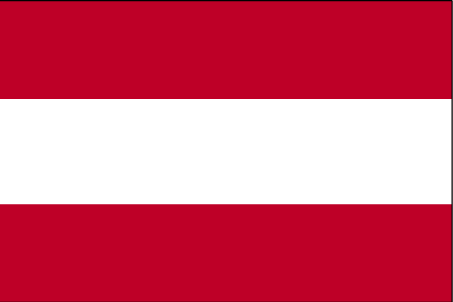
Perception of nuclear threats
Austria perceives Russia as a threat, but not a major one. Austrian governing circles are instead preoccupied with other serious nuclear-related concerns, including: nuclear and radiological terrorism, North Korea’s nuclear weapons, and the proliferation of weapons of mass destruction. Overall, Austria’s strategic assessment does not cite nuclear weapons as a priority.
Influence of public opinion on the political debate
Austria’s position is unique – as a non-NATO member it is a neutral country, and it is also a strong proponent of nuclear abolition. Government and public opinion are largely aligned on nuclear weapons policy.
Stance on disarmament
Austria has initiated international-level conferences on the humanitarian consequences of nuclear weapons and was the originator of a document that became a humanitarian pledge signed by 127 countries in 2014. In December 2016, Austria co-sponsored UN Resolution 71/258, which the UN General Assembly adopted, leading in 2017 to the Treaty on the Prohibition of Nuclear Weapons.
For Austria, the next steps on nuclear disarmament should be as follows: a reduction in stockpiles involving all states that possess nuclear weapons; the entry into force of the Comprehensive Nuclear Test-Ban Treaty; advances in methods for verifying nuclear disarmament; and the adoption of confidence-building measures by nuclear weapons states.
European coordination and perception of the need for a European political and/or military role
Austria coordinates closely with like-minded countries such as the Nordic states, as well as non-EU members such as Norway and Switzerland. Austria believes that the EU should play a role in Iran’s nuclear programme.
BELGIUM

Perception of nuclear threats
Belgium believes that nuclear weapons pose a significant – but not priority – threat. It perceives Russia as a threat irrespective of the latter’s nuclear weapons. Belgium considers Russia to be a frustrated power that seeks to regain, to some extent, part of its lost influence. Nevertheless, Belgian officials do not consider Moscow a major threat: the government sees real possibilities of cooperation with Russia on a range of issues, including terrorism.
Influence of public opinion on the political debate
Belgian citizens do not cite the nuclear issue as a major concern. During the Euromissile crisis, large demonstrations against the deployment of US nuclear weapons took place on Belgian soil. This led the government to postpone the installation of the weapons.
Stance on disarmament
In principle, Belgium strongly supports nuclear disarmament. However, federal officials believe that a non-nuclear world is currently out of reach: growing geopolitical tensions in the Middle East, in Asia, or even in eastern Europe make it difficult, for the moment, to seriously consider the possibility of massive, worldwide disarmament. The only parties opposed to this view in Belgium have far-left leanings or are Green party members, who currently have very limited influence on policymaking.
For Belgium, the next steps on nuclear disarmament should be the entry into force of the Comprehensive Nuclear Test-Ban Treaty and the launch of negotiations on the Fissile Material Cut-off Treaty.
European coordination and perception of the need for a European political and/or military role
The “European federal dream” has formed the centrepiece of Belgium’s foreign policy in the last few decades. Were any form of European deterrence architecture to emerge, France would be its backbone. However, Belgian officials mostly see this as a kind of utopia and, therefore, prefer to resort to NATO when tackling such issues.
BULGARIA
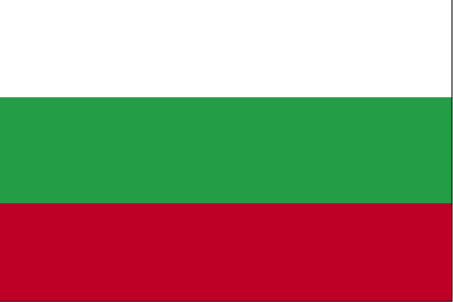
Perception of nuclear threats
Bulgaria’s main nuclear security concern is the proliferation of weapons of mass destruction and their means of delivery – nuclear and missile programmes. The management of nuclear waste also figures among its most prominent concerns.
Bulgaria perceives Russia as a threat and believes that its status as a nuclear power amplifies this threat. The annual Report on the State of National Security of the Republic of Bulgaria, published in September 2017, states that “the actions of Russia are a source of regional instability and threaten our main goal for a unified, free and peaceful Europe”. It also notes that Bulgarian political parties and other stakeholders hotly contested “the militarisation of Crimea and breaches of the conventional arms agreements”.
Influence of public opinion on the political debate
The geopolitical context has brought the general public round to favouring nuclear deterrence – but only in the sense of upgrading Western nuclear weapons.
Stance on disarmament
Sofia considers itself to be strongly in favour of nuclear disarmament. However, it put none of its weight behind the Treaty on the Prohibition of Nuclear Weapons (TPNW). As one expert contributing to this study explained: “nuclear-weapon states have not joined it and its entry into force will not result in the destruction of even a single nuclear device.” Bulgaria believes that the treaty threatens the legitimacy of the TPNW and diverts the international community’s attention away from more immediate tasks in nuclear disarmament and non-proliferation.
For Bulgaria, the next steps on nuclear disarmament should be as follows: the entry into force of the Comprehensive Nuclear Test Ban Treaty; the launch of negotiations on the Fissile Material Cut-off Treaty; and the adoption of confidence-building measures by nuclear weapons states.
European coordination and perception of the need for a European political and/or military role
There is no significant debate about the need for a European deterrent. Traditionally, Bulgaria believes that the United States has the primary strategic role in defending Europe, and fears that western European powers are less committed to the country’s security. Bulgarians generally view French and British nuclear forces as irrelevant to their country’s security.
CROATIA
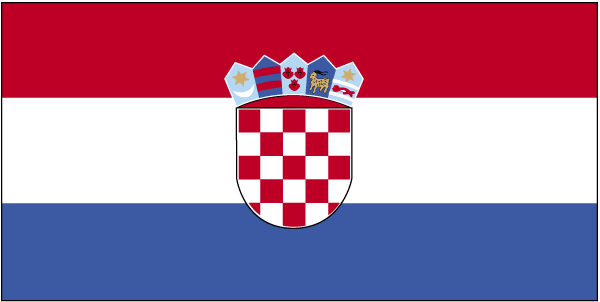
Perception of nuclear threats
Croatia considers threats such as terrorism, cyber warfare, and intra-state conflicts that could lead to regional destabilisation to be more important than nuclear threats. It perceives Russia as a threat irrespective of the fact that it possesses nuclear weapons.
Influence of public opinion on the political debate
The general public does not name nuclear deterrence as an important issue and no significant debate on the topic has taken place in recent years.
Stance on disarmament
Croatia subscribes to the international consensus on nuclear disarmament: it is a signatory party to all major international agreements on the non-proliferation of weapons of mass destruction, arms control, and disarmament. However, Croatia’s governing circles elites were all against the Treaty on the Prohibition of Nuclear Weapons. Zagreb claimed that US nuclear weapons were essential to Croatia’s security. It believes that the next step on nuclear disarmament should be a reduction in stockpiles involving all states that possess nuclear weapons.
European coordination and perception of the need for a European political and/or military role
Other European Union and NATO members influence Croatia’s policy on nuclear issues through formal mechanisms. As a rule of thumb, the Croatian foreign and defence ministries align themselves with NATO and EU positions on nuclear issues, issuing statements that criticise breaches of international law and treaties (such as those by North Korea, China, and Iran) or supporting EU and NATO decisions on security issues.
CYPRUS
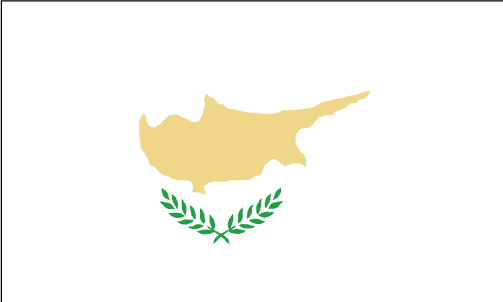
Perception of nuclear threats
Cyprus is very worried about nuclear activities that take place in a non-verifiable and non-transparent manner. However, Turkey’s occupation of the island is Cyprus’s main security concern. Nuclear threats are not one of Cyprus’s security priorities: the nature of its nuclear concerns, according to our survey, has more to do with nuclear and radiological terrorism, as well as nuclear accidents.
Cyprus does not perceive Russia as a threat. Instead, it sees itself as having close historical ties to Russia. In October 2017, the presidents of Russia and Cyprus signed a joint action plan for the 2018-2020 period, which covers politics, economics, energy, defence, international issues, and European Union affairs. Cyprus is one of just eight countries that say that Europeans should ignore Russia’s alleged violations of the Intermediate-Range Nuclear Forces Treaty.
Influence of public opinion on the political debate
Cyprus does not regard nuclear arms as a threat, and engages in no significant public debate on nuclear-related issues. Even recent nuclear threats in Asia did not resonate in the country’s public debate.
Stance on disarmament
Cyprus is strongly in favour of nuclear disarmament and sees the total elimination of nuclear weapons as the ultimate goal of this process. It also strongly supports the entry into force of the Comprehensive Nuclear Test Ban Treaty and would like the measure to be universally adopted.
European coordination and perception of the need for a European political and/or military role
Cyprus sees French and British nuclear forces as irrelevant to its security. Cyprus is one of the small number of countries within the EU to hold strong anti-nuclear views.
CZECH REPUBLIC

Perception of nuclear threats
The Czech public does not exhibit much interest in topics related to nuclear deterrence or weapons except when there is media coverage of the North Korean nuclear and missile programmes.
The Czech Republic sees Russia as a threat amplified by its nuclear weapons. Some Czech experts argue that Russia would be less hesitant to use nuclear weapons than NATO would, expressing concern about a lack of democratic control over Russia’s nuclear weapons and their possible use. Other experts think that Russia is a responsible and stable nuclear power. There are no public documents or speeches from Czech officials that name Russia as a threat to the country.
Influence of public opinion on the political debate
The possible deployment to the Czech Republic of radar as part of the US missile defence system resonated strongly with the public in the late 2000s. At that time, two-thirds of Czechs were against such a deployment.
Stance on disarmament
The Czech Republic was strongly opposed to the Treaty on the Prohibition of Nuclear Weapons. It thinks that this treaty challenges transatlantic ties and NATO. The Czech Republic does not believe that nuclear disarmament is achievable and suggests instead focusing attention on the Non-Proliferation Treaty regime.
Should new steps be taken in the framework of disarmament, the Czech Republic would pursue the following, in priority order: new US-Russia reductions in strategic weapons; the entry into force of the Comprehensive Nuclear Test Ban Treaty; the launch of negotiations on the Fissile Material Cut-off Treaty; advances in the verification of nuclear disarmament; and the adoption of confidence-building measures by nuclear weapons states.
European coordination and perception of the need for a European political and/or military role
Consultations on nuclear issues mainly take place with the United Kingdom’s Ministry of Defence and with the German and French ministries of foreign affairs. NATO remains the Czech Republic’s primary security provider.
DENMARK
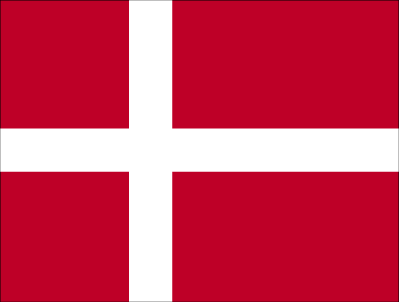
Perception of nuclear threats
Denmark generally perceives nuclear threats as less important than most other threats. Denmark does not perceive Russia as a threat despite the fact that it possesses nuclear weapons.
Influence of public opinion on the political debate
A large majority of the Danish public is against nuclear deterrence. During the 1970s and the 1980s, Denmark’s relationship with the United States and NATO became particularly strained over nuclear weapons, which Denmark decided not to station on its territory. Since then, Danish policymakers have made efforts to significantly distance themselves from the policies of the 1980s, not least because NATO and the relationship with the US is the fundamental framework for Danish foreign and security policy. There is, however, still a strong domestic anti-nuclear sentiment. The issue remains a balancing act for Danish governments, which try to take account of both popular anti-nuclear sentiment and the fact of membership of a military alliance with nuclear capabilities at its core.
Stance on disarmament
All political parties are in favour of nuclear disarmament but, when in power, they have not made significant moves towards making this a reality. While a majority oppose the United Nations’ recent effort to adopt the Treaty on the Prohibition of Nuclear Weapons, pacifist and left–red/green alliance Enhedslisten argued that Denmark should support any attempt to limit nuclear weapons.
For Denmark, the next steps on nuclear disarmament should include: new US-Russia reductions in strategic weapons; new US-Russia reductions in non-strategic weapons; and reductions in nuclear weapons involving all states that possess them.
European coordination and perception of the need for a European political and/or military role
Denmark believes that the European Union should take action on Iran’s and North Korea’s nuclear programmes. Denmark also coordinates with other NATO members on nuclear weapons issues. However, since the Treaty of Amsterdam (1997), it has formally benefited from an opt-out from the EU’s Common Security and Defence Policy. Consequently, Denmark is excluded from EU foreign policy discussions with defence implications and does not participate in foreign EU missions with a defence component.
ESTONIA

Perception of nuclear threats
Estonia views nuclear deterrence and the use of nuclear assets as a last resort, though one it is prepared to support. Estonia perceives Russia as a threat amplified by its nuclear weapons; Tallinn’s main concern is that Moscow will threaten to use tactical nuclear weapons as a component of a hybrid warfare scenario against NATO forces in the Baltic region.
Estonian experts also believe that NATO should signal its willingness to use nuclear weapons against Russia if needed. In such a scenario, the Baltic states would be part of a wider Russia-NATO confrontation.
Influence of public opinion on the political debate
In general, the Estonian-speaking majority is in favour of nuclear deterrence and the Russian-speaking minority is critical of it. The political elite has stressed several times that nuclear deterrence is a critical component of NATO’s model in the region and should be applicable if Estonia comes under threat.
Stance on disarmament
Nuclear deterrence is vital to Estonia’s defence strategy. The country would not support steps towards nuclear disarmament if this would put it at risk.
However, should new steps be taken in the framework of disarmament, Estonia would pursue the following, in priority order: new US-Russia reductions in strategic weapons; new US-Russia reductions in non-strategic weapons; and reductions in nuclear weapons involving all states that possess them.
European coordination and perception of the need for a European political and/or military role
As US-based nuclear deterrence plays a central role in Estonia’s defence and deterrence strategy, the country supports the US position unconditionally. Estonia views Western nuclear capabilities as sufficient to deter Russia. The main critical variable is a readiness to use those assets. However, Estonia has the US in mind when it talks about NATO, as it views the United Kingdom and France as insufficiently capable.
FINLAND

Perception of nuclear threats
Finland’s key strategic documents refer to nuclear threats only in passing. The government’s most recent white paper on defence policy mentions nuclear threats twice. Firstly, in relation to Russia, it notes that “much as in the West, Russia focuses the material development of its armed forces on long-range strike capability and precision-guided weapons, manned aircraft and unmanned aerial vehicles, robotics, nuclear weapons, air and space defence as well as digital command & control and intelligence systems (C4ISR).” Secondly, it argues that “wide-ranging chemical, biological, radiological and nuclear (CBRN) threats persist”.
Influence of public opinion on the political debate
Finland has a long-standing tradition of promoting nuclear arms control and non-proliferation – a product of Finns’ general distrust of great power politics and Finland’s vulnerable geopolitical position and non-membership of NATO. Finns’ interest in, and awareness of, nuclear issues decreased after the end of the cold war.
Stance on disarmament
During the cold war, Finland actively promoted the idea of a Nordic nuclear weapons-free zone. Finland has also been an active supporter of the Non-Proliferation Treaty (NPT) and the Comprehensive Nuclear Test Ban Treaty (CTBT). However, recently, Finland’s foreign policy leadership (comprising the president, the government, and the civil service) has opposed the Treaty on the Prohibition of Nuclear Weapon (TPNW). It posits that the treaty will not contribute to nuclear disarmament because nuclear-armed states have not signed up to it. Instead, the TPNW could weaken existing agreements – most notably the NPT, which continues to be the cornerstone of Finland’s nuclear policy.
For Finland, the next steps on nuclear disarmament should include: new US-Russia reductions in strategic weapons; new US-Russia reductions in non-strategic weapons; reductions in nuclear weapons involving all states that possess them; the entry into force of the CTBT; and the launch of negotiations on the Fissile Material Cut-off Treaty.
European coordination and perception of the need for a European political and/or military role
Other EU member states and Nordic countries formally influence Finland’s policy on nuclear issues. Although Finland is not a NATO member, it regards the US presence in Europe as essential to its security.
FRANCE

Perception of nuclear threats
The Strategic Review on Defence and National Security, published in October 2017, identifies terrorism as the most important threat to French national security. Armed forces minister Florence Parly’s foreword to the review states that: “Jihadist terrorism remains the most direct threat our country faces today. France and its European neighbours have been hit hard.” However, nuclear threats feature prominently in the document, which links them with the resurgence of great power rivalries. In fact, the review’s introduction argues that: “given that the nuclear factor is set to play an increasing role in France’s strategic environment, maintaining over the long-term our nuclear deterrent, the keystone of the Nation’s defence strategy, is essential now more than ever.” France considers the proliferation of nuclear weapons to be a major threat.
France does not directly characterise Russia as a threat in official documents but sees its security activities and its strategic intimidation policy as a threat to French national security. France recognises that Russia’s nuclear programme is a central element of Russian power but that it may pose a threat to France when combined with its aggressive behaviour. The Strategic Review contains a chapter dedicated to “Issues arising from renewed Russian power”. France acknowledges that Russia’s efforts to modernise its military, including its nuclear deterrent, launched in the 2000s and accelerated since 2010, are already yielding significant results.
Influence of public opinion on the political debate
The general public is in favour of nuclear deterrence and believes it should be modernised by renewing the French arsenal to preserve credibility – increasingly so, according to the defence ministry’s 2017 Defence Barometer. Still, there is more tacit approval than real public debate. This is not because of a lack of public interest but is instead a question of political culture: foreign policy, security, and defence are prerogatives of the executive branch. There is a consensus on deterrence among mainstream parties as it is an integral part of the country’s credibility on foreign policy.
Stance on disarmament
France is in favour of nuclear disarmament – but only if the global security environment improves, given that it is set on a minimal deterrence policy. The government describes its vision as “pragmatic and progressive”. This gradual approach to disarmament is reiterated in the Strategic Review: “Disarmament cannot be decreed but ought to be built gradually. This is why encouraging a realistic process of arms control and confidence-building is important, in order to contribute to strategic stability and shared security.”
European coordination and perception of the need for a European political and/or military role
There were attempts to debate the Europeanisation of deterrence in the early 1990s in France, but French governing circles remain sceptical about this. However, France does officially recognise a European dimension to its nuclear deterrence: the Strategic Review notes the deterrent’s contribution to the overall security of the Atlantic alliance and of Europe. France coordinates with the United Kingdom on nuclear weapons issues. France’s independent nuclear posture still includes its non-participation in NATO’s Nuclear Planning Group, even if the country has gradually acknowledged that its national nuclear forces contribute to the overall deterrence capability of the alliance.
GERMANY

Perception of nuclear threats
Nuclear threats have recently risen in prominence in Germany’s assessment of the strategic environment. The government’s 2016 white paper on German security policy states that, for as long as nuclear weapons remain a factor in military confrontations, the imperative of nuclear deterrence and nuclear sharing will continue. The white paper highlights the “incalculable risks” of the proliferation of nuclear weapons and other weapons of mass destruction. It also points to the risk that terrorist networks might obtain weapons of mass destruction. However, other threats, such as terrorism and hybrid warfare, receive more attention in the white paper and in the government’s official statements. Experts maintain that this does not imply that nuclear threats are not a priority but rather reflects the fact that the German government is reluctant to discuss nuclear weapons in the wider security context.
German experts agree that the threat that Russia poses only has an existential dimension due to its nuclear weapons.
Influence of public opinion on the political debate
Germany exhibits a strong divergence of views between the general public and the political establishment. But, unlike in the Netherlands, for example, the public does not exert significant influence over the government on this issue. This could be seen in the fact that the government opposed the Treaty on the Prohibition of Nuclear Weapons (TPNW) from the start. Given popular opposition to nuclear weapons, most political discussions take place behind the scenes and the government takes nuclear-related decisions independently of popular sentiment.
Stance on disarmament
Nuclear disarmament and non-proliferation are the core principles underpinning German policy in this area. The public shares moral repugnance at all weapons. The vast majority of Germans are in favour of worldwide nuclear disarmament and the total abolition of nuclear weapons. As of 2017, two-thirds of Germans wanted their government to remove US nuclear weapons stationed in the country, and more than 70 percent wanted their government to sign up to the TPNW.
For Germany, the next steps on nuclear disarmament should include: the entry into force of the Comprehensive Nuclear Test Ban Treaty; the launch of negotiations on the Fissile Material Cut-off Treaty; and the adoption of confidence-building measures by nuclear weapons states.
European coordination and perception of the need for a European political and/or military role
The US nuclear security guarantee is seen as credible, but less so under Donald Trump. This has even led to suggestions that European deterrence should be discussed. However, interest in the issue was short-lived – one newspaper even called it a “phantom debate”.
GREECE
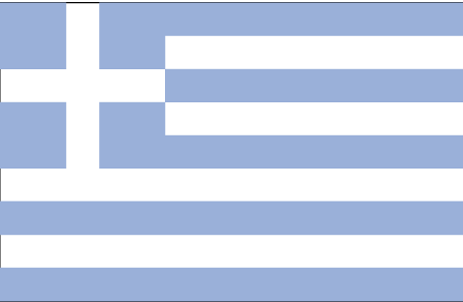
Perception of nuclear threats
The Greek government considers the proliferation of weapons of mass destruction and their technology to be one of the most severe threats to international peace and security.
The current Greek government does not view Russia as a threat.
Influence of public opinion on the political debate
In recent years, Greek governments have supported the international community’s non-proliferation initiatives and have publicly spoken about the need to support dialogue on this subject. But they have not played any active role in this. The issue is not on the public agenda in Greece. Greeks’ only potential nuclear concern derives from media reports on tensions on the Korean Peninsula.
Stance on disarmament
Greece has declined to set out a position on the recent effort at the United Nations to adopt the Treaty on the Prohibition of Nuclear Weapons. The official Greek position is based on Article 6 of the Non-Proliferation Treaty, which calls for a “gradual” approach to achieving nuclear disarmament.
For Greece, the next steps on nuclear disarmament should include reductions in nuclear weapons involving all states that possess them and advances in the verification of nuclear disarmament.
European coordination and perception of the need for a European political and/or military role
On both Iran’s and North Korea’s nuclear programmes, Greece believes the only meaningful thing European Union member states can do is to support the United States. On nuclear issues, Greece is influenced mostly by the US. It coordinates its positions on nuclear weapons issues with other NATO member states.
HUNGARY

Perception of nuclear threats
The 2012 Hungarian Security Strategy notes that weapons of mass destruction, including nuclear weapons, are a strategic threat to Hungary. This includes their spread, the growth in the number of states that have them, and the possibility that they will fall into the hands of violent non-state actors However, the current Orban government frames terrorism and migration as the most pressing threats to Hungary and Europe – and, at the political level, they dominate the discourse.
Hungarian military and security experts consider Russia to be a threat, but do not particularly focus on the country’s nuclear capabilities.
Influence of public opinion on the political debate
There are no recent polls on the question of nuclear deterrence, and it has not become a topic of public debate lately. The government’s position on nuclear deterrence has been stable and consistent since the 1990s; it is driven by geopolitical considerations and Hungary’s membership of NATO.
Stance on disarmament
Hungary’s governing circles were against the Treaty on the Prohibition of Nuclear Weapons, arguing that the Non-Proliferation Treaty (NPT) should remain the cornerstone of the nuclear non-proliferation regime.
Hungary supports an incremental process of nuclear disarmament that fully engages with nuclear weapons states and preserves the integrity of the NPT.
For Hungary, the next steps on nuclear disarmament should include: the entry into force of the Comprehensive Nuclear Test Ban Treaty; the launch of negotiations on the Fissile Material Cut-off Treaty; advances in the verification of nuclear disarmament; and the adoption of confidence-building measures by nuclear weapons states.
European coordination and perception of the need for a European political and/or military role
Hungary sees no alternative to the American deterrent. It has no ambition to pursue a separate European deterrent as it sees this as unrealistic. It does believe the European Union should take action on Iran’s and North Korea’s nuclear programmes.
IRELAND

Perception of nuclear threats
Ireland does not view nuclear weapons as a direct domestic threat, but the government generally adopts a broader approach to the issue by supporting global disarmament. Official Irish policy positions focus on the impact of nuclear threats on the international community. The government’s 2015 white paper on defence expresses concerns about the proliferation of weapons of mass destruction and missile technology.
In light of its opposition to nuclear weapons, Ireland’s perception of Russia as a nuclear power is inevitably unfavourable. Ireland has begun to acknowledge the potential danger of Russia’s unpredictable actions in recent times, its continuing efforts to modernise its nuclear forces, and its apparent violation of the Intermediate-Range Nuclear Forces Treaty. However, Irish officials rarely single out any one country for criticism on nuclear issues, with the exception of the non-signatories to the Treaty on the Non-Proliferation of Nuclear Weapons. This is likely a consequence of its desire to be seen as an honest broker on these issues in international forums.
Influence of public opinion on the political debate
The Irish public takes a dim view of the use of military force in general. This sentiment inevitably spills over into public attitudes towards nuclear weapons, which is generally negative. For 60 years, Irish governments have been proponents of nuclear non-proliferation and disarmament. This is a principled stance shared by all political parties in Ireland.
Stance on disarmament
As support for nuclear disarmament and non-proliferation remains one of its key foreign policy positions, the government holds that its priority within the framework of nuclear disarmament should be reductions in nuclear weapons involving all states that possess them.
In 2017, the Irish UN disarmament delegation, along with six international partners – including its Austrian counterpart – won the Arms Control Person of the Year for its role in the creation of the Treaty on the Prohibition of Nuclear Weapons.
European coordination and perception of the need for a European political and/or military role
Ireland sees French and British nuclear forces as irrelevant to its security. Were a debate on the need for a European deterrent to enter the Irish public domain, where opinion is already highly charged on the topic of the relatively limited European defence proposals, it would likely generate deep suspicion and negativity. It could even have an impact on the enthusiasm the Irish currently feel for their membership of the European Union. Ireland is not a NATO member state.
ITALY

Perception of nuclear threats
The latest national strategic document issued by the Ministry of Defence, the 2016 White Book, suggests that the government does not consider nuclear threats a major security challenge. But it does identify nuclear proliferation, including its potential connections to the terrorist threat and non-state actors, as a potential risk to national security. National priorities mainly focus on security threats stemming from key strategic areas – namely, the central Mediterranean, the Sahel, and the Horn of Africa.
Italy does not think of Russia as a nuclear threat. On the contrary, Italy believes that nuclear tensions with Russia could be defused through dialogue and confidence-building measures. In this regard, Rome aims to enhance forms of cooperation with Moscow to tackle global issues jointly. However, Italy has also called on the Russian government to commit to the full implementation of the Intermediate-Range Nuclear Forces Treaty.
Influence of public opinion on the political debate
Italians view nuclear issues as remnants of the cold war era that have little relevance today.
Nuclear deterrence formed the focus of debate on three main occasions: in the 1950s, when Italy decided to join NATO; in 1975, when the Non-Proliferation Treaty (NPT) was signed; and in the late 1970s and early 1980s, during Euromissile Crisis. Since then, the topic has remained under the quasi-exclusive competence of the military and has not been subject to public debate. According to a 2006 survey, only 32.8 percent of Italians were aware of the existence of nuclear weapons on their soil.
Stance on disarmament
Italy agreed to sign the NPT on the assumption that nuclear states would, in the long run, maintain their commitment to nuclear disarmament. Italy stressed that it was working to make the NPT the cornerstone of the nuclear non-proliferation process.
For Italy, the next steps on nuclear disarmament should include: the entry into force of the Comprehensive Nuclear Test Ban Treaty; the launch of negotiations on the Fissile Material Cut-off Treaty; advances in the verification of nuclear disarmament; and the adoption of confidence-building measures by nuclear weapons states.
European coordination and perception of the need for a European political and/or military role
In addition to coordination within NATO, there is an ongoing debate in Italy about the need for a European deterrent. This proposal has not won general approval: whether for an extension of the British and French nuclear umbrella to the other EU member states or for an even more unlikely EU27 common nuclear force. Furthermore, Italy fears that the Europeanisation of nuclear deterrence would risk damaging NATO, as countries that are outside the EU but within the Atlantic alliance would resist the move.
LATVIA

Perception of nuclear threats
Latvia considers nuclear threats to be a priority. The Russian government’s announcements that it could use nuclear weapons to defend Crimea have caused concern. The possibility of it using Iskander rockets to carry nuclear warheads, and their location in Kaliningrad next to Baltic states, have led the Latvian government to include nuclear threats in its security assessments.
Influence of public opinion on the political debate
In the past five years, Latvians have become increasingly supportive of nuclear deterrence but only in the form of upgrading Western nuclear weapons. A 2014 study for the Latvian defence ministry found that 25 percent of respondents believed NATO should deal with the proliferation of nuclear weapons across the world.
Generally, there is no substantial discussion in Latvia on nuclear deterrence as policymaking is mostly driven by other factors, including security concerns about Russia.
Stance on disarmament
Latvia supports the Global Zero approach to nuclear weapons, but it also understands the practical implications of strategic balance in nuclear capacities. The government believes that the global security situation does not allow for full nuclear disarmament, although it backs the Comprehensive Nuclear Test Ban Treaty (CTBT).
For Latvia, the next steps on nuclear disarmament should include: the entry into force of the CTBT; the launch of negotiations on the Fissile Material Cut-off Treaty; advances in the verification of nuclear disarmament; and the adoption of confidence-building measures by nuclear weapons states.
European coordination and perception of the need for a European political and/or military role
The dominant attitude in Latvia is: ‘Why fix something that is not broken?’ The strategic partnership with the United States is of paramount importance to Latvia, so any substitution of the US role is viewed with great caution.
LITHUANIA

Perception of nuclear threats
The Lithuanian National Security Strategy refers to nuclear concerns in the context of a threat from Russia.
Lithuania perceives Russia as a threat irrespective of its nuclear weapons and the main threat to Lithuanian national security. Russia has stated that it is prepared to use a nuclear weapon even against states which do not possess one – this poses an additional challenge to the security of Lithuania and the whole Euro-Atlantic community.
Influence of public opinion on the political debate
Nuclear deterrence is not a live topic in the public debate. There is no readily available information on public views on this issue.
Stance on disarmament
The government has not expressed a strong opinion on nuclear disarmament. It is an official goal but the government believes that existing processes should remain the main forums for discussion. There is a consensus within the governing circles of Lithuania that the Treaty on the Prohibition of Nuclear Weapons (TPNW) is not the right mechanism for promoting global security and disarmament. Their view is that the TPNW could do more harm than good if it negatively affects NATO’s defence and deterrence capabilities, which are crucial to Lithuania’s and Europe’s security.
For Lithuania, the next steps within the framework of nuclear disarmament should include: new US-Russia reductions in strategic weapons; new US-Russia reductions in non-strategic weapons; reductions in nuclear weapons involving all states that possess them; the entry into force of the Comprehensive Nuclear Test Ban Treaty; the launch of negotiations on the Fissile Material Cut-off Treaty; advances in the verification of nuclear disarmament; and the adoption of confidence-building measures by nuclear weapons states.
European coordination and perception of the need for a European political and/or military role
The consensus in Lithuania is that the United States and NATO are the main guarantors of nuclear security in Europe. It considers Washington’s commitments to be credible, regardless of who holds the presidency – especially given the 40 percent rise in the deterrence budget for NATO’s eastern flank and the deployment of US troops to Lithuania and other Baltic states. Lithuania does not see the development of a European deterrent separate from NATO as meaningful or effective.
LUXEMBOURG

Perception of nuclear threats
Nuclear military threats are not a security concern for Luxembourg. Out of many nuclear-related issues, only nuclear threats in North Korea and India and Pakistan have resonated at all in the country’s public and political debate on security. Russia does not figure among Luxembourg’s principal concerns.
Influence of public opinion on the political debate
The public has exhibited no interest in the issue of nuclear deterrence.
Stance on disarmament
Despite the lack of public interest, Luxembourg is one of the European Union’s strongest supporters of non-proliferation and disarmament. It is party to the Non-Proliferation Treaty and, as such, it is committed to its three pillars: nuclear non-proliferation, nuclear disarmament, and peaceful uses of nuclear energy. Luxembourg, therefore, believes that the next steps on nuclear disarmament should include: new US-Russia reductions in strategic weapons; new US-Russia reductions in non-strategic weapons; reductions in nuclear weapons involving all states that possess them; the entry into force of the Comprehensive Nuclear Test Ban Treaty; the launch of negotiations on the Fissile Material Cut-off Treaty; advances in the verification of nuclear disarmament; and the adoption of confidence-building measures by nuclear weapons states.
European coordination and perception of the need for a European political and/or military role
Luxembourg is too small and secure to have a strong interest in nuclear-related issues. As a result, it does not view nuclear deterrence as important. It simply follows NATO and EU positions on this issue.
Luxembourg’s position on missile defence is interesting: the country is neutral on the usefulness of missile defence in Europe. It understands the value that these systems may have for NATO allies in light of potential regional threats but it holds a more cautious position than they do.
MALTA

Perception of nuclear threats
Neither the general public nor the political elite consider Malta to be a likely target of nuclear attack. Indeed, instability in Libya and across the southern Mediterranean more broadly ranks much higher among Maltese concerns. However, politicians across the political divide believe that the risk posed by the existence of nuclear weapons threatens the entire international community. Malta maintains a firm position in support of nuclear disarmament.
Malta perceives Russia to be a threat and agrees that its nuclear weapons amplify this threat. The protracted conflict in eastern Ukraine, Russia’s support for the Assad regime in Syria, and the Russian intervention in Libya have pushed the government of Malta towards a more hardline position on Russian interests, as exemplified by its firm stance in support of sanctions.
Influence of public opinion on the political debate
Malta is constitutionally committed to neutrality. There is some sign that this adherence may be weakening, but both politicians and public opinion remain firmly in favour of nuclear disarmament. Indeed, the rise of nuclear tensions from Ukraine to the Korean Peninsula, as well as concerns about the Trump administration’s nuclear policy, has marginally increased support for global nuclear disarmament.
Stance on disarmament
Malta maintains a particularly independent, durable position on nuclear disarmament. Within the European Union, Malta voted alongside Sweden, Austria, Cyprus, and Ireland for the adoption of the Treaty on the Prohibition of Nuclear Weapons, which passed in 2017. However, Malta has not ratified the treaty.
For Malta, the next step within the framework of nuclear disarmament should include reductions in nuclear weapons involving all states that possess them.
European coordination and perception of the need for a European political and/or military role
Maltese politicians remain steadfast in their support for the European project and frame the current transformation of relations between the EU and the United States as an opportunity to develop a truly European foreign policy and a more independent and integrated non-nuclear European defence capacity, thereby enhancing cohesion. Malta believes European security would be stronger without French and British nuclear forces.
THE NETHERLANDS

Perception of nuclear threats
The Netherlands’ 2013 international security strategy and subsequent policy documents cite nuclear weapons as a potential threat. However, other issues (cyber attacks, terrorism, and transnational crime) feature as more urgent threats. Moreover, the nuclear threat they identify is more that of nuclear terrorism than one stemming from nuclear weapons states.
The Dutch believe Russia is a threat whose possession of nuclear weapons increases the danger it poses. This has been the case since the beginning of the conflict in Ukraine in 2014, which increased political tension between the two countries, especially after the downing of Malaysia Airlines flight MH17. The political rhetoric Russian spokespeople have deployed has pushed nuclear weapons up the agenda. The Netherlands is also concerned about the modernisation of the Russian armed forces, particularly its nuclear weapons.
Influence of public opinion on the political debate
According to a 2013 poll by the Netherlands Red Cross Society, 85 percent of Dutch people favour a ban on nuclear weapons. Moreover, a majority in the Dutch parliament has expressed a similar view on several occasions, including through a 2013 motion to ensure that the fighter jet the Netherlands procures as a successor to the F16 is not capable of delivering nuclear weapons.
Stance on disarmament
The Netherlands belongs to the handful of European Union member states in which there is real tension between government positions and opinion in parliament and among the public. This is the reason the Netherlands was the only NATO country to take part in the talks on the Treaty on the Prohibition of Nuclear Weapons. This was despite the fact that the country participates in NATO’s nuclear burden-sharing arrangements and hosts around 20 American tactical nuclear weapons. It did so following a motion in the Dutch parliament that called on the government to pursue this. Eventually, though, the government voted against this treaty.
Both the Dutch government and the public are in favour of nuclear disarmament, but not at the expense of NATO’s security. They do not support the unilateral disarmament of tactical nuclear weapons, and believe that disarmament should also form part of negotiations involving Russia. Indeed, for the Dutch, the next steps on nuclear disarmament should include: new US-Russia reductions in strategic weapons; new US-Russia reductions in non-strategic weapons; reductions in nuclear weapons involving all states that possess them; the entry into force of the Comprehensive Nuclear Test Ban Treaty; the launch of negotiations on the Fissile Material Cut-off Treaty; advances in the verification of nuclear disarmament; and the adoption of confidence-building measures by nuclear weapons states.
European coordination and perception of the need for a European political and/or military role
There is no public debate about a European deterrent, as most Dutch citizens associate nuclear deterrence with NATO.
POLAND

Perception of nuclear threats
Poland perceives nuclear threats mostly through the prism of Russia and its assertive foreign policy. It considers Russia’s deployment of tactical nuclear weapons to Kaliningrad to be one of the main threats to Polish security. The Russian exclave is located only 300km from Warsaw.
That Russia is a threat to Poland is a very rare point of consensus within the Polish political establishment, which is otherwise highly polarised. During its 2017 Zapad military exercises, Russia rehearsed several tactical nuclear attacks on a central European capital identified as Warsaw. Poland believes that the difference between the number of US-hosted weapons in Europe and that of Russian tactical weapons demands a considerable increase in US tactical nuclear weapons on the continent.
Influence of public opinion on the political debate
Generally, Poles are in favour of nuclear deterrence as a key pillar of NATO and of the alliance with the US that defends Poland against Russia. Nevertheless, in June 2016, one poll for the Polish edition of Newsweek on Poland’s participation in NATO nuclear sharing – the deployment of nuclear weapons on Polish soil – showed that half of all respondents were against the idea and slightly more than 25 percent were supportive. This means that Poles endorse the nuclear shield over Poland but not efforts to host nuclear weapons in the country itself.
Stance on disarmament
The Polish political elite treats complete nuclear disarmament as a beautiful illusion that will never happen. As a result, the issue does not resonate much in the domestic debate. Poland does not rule out detente and gradual and partial disarmament, but it maintains that Russia would never accept a substantial reduction in its nuclear arsenal because this constitutes a basic pillar of its status as a global power.
For the Poles, the next steps on nuclear disarmament should include advances in the verification of nuclear disarmament, as well as the adoption of confidence-building measures by nuclear weapons states.
European coordination and perception of the need for a European political and/or military role
There is an ongoing debate about a European deterrent, but opinion has mostly hardened against the idea. Poland perceives NATO under US leadership as the only credible guarantor of its security. Warsaw is, therefore, a priori suspicious of the idea of European deterrence, not least as the arsenal would be too small to be credible. In the long term, this could evolve into an attempt to constitute an alternative to the US umbrella, although this is not something the Polish government favours.
PORTUGAL

Perception of nuclear threats
Portugal’s National Defence Strategic Concept names nine “Global security environment threats and risks”. In this list, nuclear proliferation ranks fourth, after transnational terrorism, piracy, and transnational organised crime. The document also specifies nuclear proliferation in its “National security threats and risks” section, ranking this second after transnational terrorism. In both lists, nuclear proliferation refers to horizontal nuclear proliferation, or transnational terrorist groups’ and rogue states’ acquisition of nuclear weapons.
Portugal does not perceive Russia as a threat despite its nuclear weapons. Although Portugal understands other NATO countries’ concerns about Russia and its nuclear capacity, Portuguese leaders continue to view Moscow as an indispensable partner in stabilising Europe and neighbouring regions.
Influence of public opinion on the political debate
Younger Portuguese citizens tend to be relatively supportive of global nuclear disarmament, but the issue of nuclear deterrence is not a topic of public debate.
Stance on disarmament
The public is generally in favour of nuclear disarmament; indeed, it is a principle enshrined in the Portuguese constitution. But mainstream parties believe this is a long-term goal that should not jeopardise nuclear deterrence.
For Portugal, the next steps on nuclear disarmament should include new US-Russia reductions in non-strategic weapons and advances in the verification of nuclear disarmament.
European coordination and perception of the need for a European political and/or military role
The Portuguese government considers a Franco-British nuclear arrangement to be impracticable. Portugal believes that membership of the same military alliance as nuclear powers the United Kingdom and France is a positive thing. However, the government is of the opinion that deterrence in Europe comes mostly from NATO and that the US nuclear deterrent covering the entire Euro-Atlantic area is paramount.
ROMANIA

Perception of nuclear threats
Romania considers nuclear threats to be important, but it prioritises conventional threats – mainly conventional military aggression – over nuclear threats. Crimea is a grim reminder of expansionist appetites in Romania’s neighbourhood. Furthermore, Romania recognises risks associated with nuclear terrorism and the illicit trafficking of radioactive materials and cyber attacks. The country perceives Russia as a threat irrespective of the fact that it has nuclear weapons.
Influence of public opinion on the political debate
Russian aggression remains a permanent preoccupation for the Romanian public, which is why the government continues to actively seek assurances and support from its Western partners. Governing circles and the general population are concerned about Russia.
Stance on disarmament
A core component of Romania’s national security and defence strategy is its national policy on arms control, nuclear non-proliferation, and disarmament. The country is strongly in favour of nuclear disarmament, supporting the multilateral framework of international disarmament and of non-proliferation instruments at the global and regional levels.
For Romania, the next step on nuclear disarmament should be the entry into force of the Comprehensive Nuclear Test Ban Treaty.
European coordination and perception of the need for a European political and/or military role
Romanian positions on nuclear deterrence place great emphasis on the importance of NATO and the United States. Romania tends not to take sides when there are differences between the European Union and the US. The bulk of Romania’s work on nuclear issues takes place with the US and NATO.
SLOVAKIA
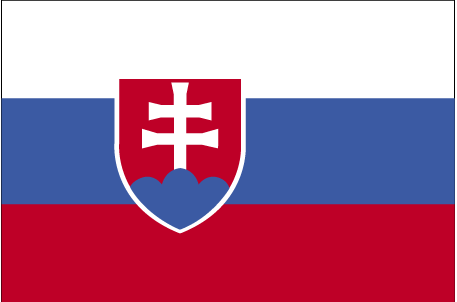
Perception of nuclear threats
Slovakia believes that the greatest threats to the strategic environment are: breaches of, and disregard for, international law and standards; cyber warfare; and hybrid forms of war. Slovakia describes nuclear weapons as a “sub-threat” – or a real threat but not a priority.
The relationship between Slovakia and Russia is one of pragmatic cooperation with the aim of mutual enrichment. Slovakia sees Russia as an important economic partner and an important player in the international political realm without which any important regional affairs and questions cannot be solved. Slovak foreign policy and diplomatic circles do not consider Russia to be a big threat.
Influence of public opinion on the political debate
There is no real debate on nuclear deterrence and very little public interest in the matter, but the question of nuclear weapons resonates more and more in public debates because of India-Pakistan tensions, Iran’s nuclear capacity, and tensions around North Korea. That said, the general approach is that the world should be nuclear-free. The public and the government are in full agreement on this position.
Stance on disarmament
Slovakia supports disarmament and reductions in all weapons, not only nuclear weapons. To that end, it backs the following steps: new US-Russia reductions in strategic weapons; new US-Russia reductions in non-strategic weapons; reductions in nuclear weapons involving all states that possess them; the entry into force of the Comprehensive Nuclear Test Ban Treaty; the launch of negotiations on the Fissile Material Cut-off Treaty; advances in the verification of nuclear disarmament; and the adoption of confidence-building measures by nuclear weapons states.
Slovakia’s governing circles were against the Treaty on the Prohibition of Nuclear Weapons because nuclear weapons states were not party to it, thereby defeating the treaty’s purpose.
European coordination and perception of the need for a European political and/or military role
There is no significant debate on the need for a European deterrent. Slovakia sticks to the standard NATO line on deterrence, which is that nuclear weapons are a core component of the alliance’s capabilities for deterrence and defence alongside conventional and missile defence forces.
SLOVENIA

Perception of nuclear threats
Slovenia’s 2012 defence strategy places the nuclear threat in its second tier of threats (along with “military threats, illegal activities concerning conventional weapons, weapons of mass destruction and nuclear technology, terrorism, cyber threats, the abuse of information technology and systems, intelligence activities”). This second tier comprises global threats that concern Slovenia as a member of the international community.
Slovenian decision-makers do not regard Russia as a direct threat.
Influence of public opinion on the political debate
The public debate does not have a significant influence on the government’s position. The government’s decision not to sign the Treaty on the Prohibition of Nuclear Weapons was based on Slovenia being a NATO member that adheres to the alliance’s policy on its nuclear umbrella. But the general sentiment of the public and the criticism voiced by parts of civil society in response to the decision was strong enough for the government to have to explain its decision after the fact.
Stance on disarmament
Slovenia is in favour of nuclear disarmament. However, it believes that achieving this goal will require states to meet specific technical and security preconditions, to generate confidence in the process. This includes the entry into force of the Comprehensive Nuclear Test Ban Treaty, the launch of negotiations on the Fissile Material Cut-off Treaty, and advances in the verification of nuclear disarmament. Today, the global security environment does not meet these conditions.
European coordination and perception of the need for a European political and/or military role
Slovenia coordinates its policy on nuclear deterrence issues with other European Union and NATO member states but engages in no significant debate on the need for a European deterrent.
SPAIN
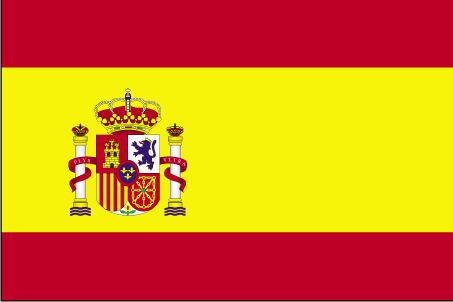
Perception of nuclear threats
The 2017 National Security Strategy places no special emphasis on nuclear issues. In both its 2017 and 2013 strategies, Spain devotes only limited space to nuclear weapons in the section on the non-proliferation of weapons of mass destruction.
Spain does not consider Russia to be a threat, despite it being the only non-Western nuclear power with the potential to strike Spanish territory.
Influence of public opinion on the political debate
Spain is an Atlanticist with little to no interest in nuclear weapons. In addition, there is scarce public or media interest in the topic of nuclear deterrence. Spain’s position is determined by three issues: it enjoys the cover of the NATO nuclear umbrella; it does not possess nuclear weapons; and it supports the Non-Proliferation Treaty (NPT).
Stance on disarmament
Spain’s official is to give close support to the NPT regime while positioning itself as a reliable partner in NATO. Following these parameters, Madrid rejected the Treaty on the Prohibition of Nuclear Weapons, which it views as weakening the NPT. Should new steps be taken in the framework of nuclear disarmament, Spain believes they should include: new US-Russia reductions in strategic weapons; new US-Russia reductions in non-strategic weapons; reductions in nuclear weapons involving all states that possess them; and the entry into force of the Comprehensive Nuclear Test Ban Treaty.
European coordination and perception of the need for a European political and/or military role
Spain believes cooperation with the United States on nuclear-related issues to be crucial and more important than that with France or the United Kingdom. The strategic cultures of France and the UK discourage Spain from supporting a European deterrent. Spain generally prefers pan-European security initiatives.
SWEDEN
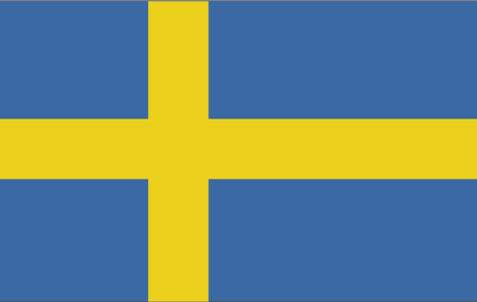
Perception of nuclear threats
The Swedish government identifies military aggression – including its nuclear dimension – as its leading security threat. Threats in the cyber and information sphere are the country’s next priority, followed by terrorism and violent extremism. On numerous occasions, Sweden has declared that nuclear weapons constitute the single greatest threat to humanity and that their continued existence is a failure of the international community. It also holds that the situation in North Korea is one of the biggest sources of geopolitical insecurity and instability in east Asia, and that this could have far-reaching implications.
Russian nuclear capabilities have had little effect on Sweden’s public debate but have become increasingly prominent in the country’s political debate since Russia’s illegal annexation of Crimea. The Swedish government continues to emphasise the importance of maintaining an open dialogue with Russia, especially when it comes to nuclear disarmament – in which Sweden wants to see both Russia and the US take up leading roles. The Swedish defence establishment worries about Russia’s increasingly aggressive nuclear rhetoric and its modernisation of non-strategic nuclear weapons as compensation for its lack of conventional means.
Influence of public opinion on the political debate
Public debate has made a strong impact on the government. Its official policy and rhetoric have been very anti-nuclear: foreign minister Margot Wallström has been outspoken in saying that nuclear weapons and nuclear deterrence are not a legitimate means of providing security. There seems to be a gap in the Swedish debate between the government’s management of security and nuclear politics and its efforts at global nuclear disarmament. Sweden is trying to maintain its position as a leading advocate for global nuclear disarmament while retaining strong transatlantic ties in security politics and cooperating with NATO. The country is gradually balancing these equally important factors but the two have not yet come together in a coherent policy. Members of both camps feel that the two priorities inherently contradict each other. The public is firmly opposed to nuclear weapons. This has influenced, and given confidence to, the government’s decision to maintain its position as a stalwart opponent against nuclear weapons.
Stance on disarmament
As an advocate of global disarmament, Sweden maintains its neutrality by engaging in transatlantic cooperation and working with NATO without entertaining the prospect of joining the alliance. Furthermore, the Swedish government maintains that, despite the importance of the partnership between Sweden and NATO, it will maintain a strong anti-nuclear position regardless of the effect this may have on transatlantic cooperation.
European coordination and perception of the need for a European political and/or military role
The debate in Sweden is mostly prompted by coordination with the US on nuclear matters and by possible NATO membership.
UNITED KINGDOM

Perception of nuclear threats
The United Kingdom ranks security risks in three tiers based on a joint assessment of likelihood to occur and impact, with Tier One being the highest in this taxonomy. An attack using weapons of mass destruction (chemical, biological, radiological, or nuclear) is a Tier Two priority. Terrorism, cyber warfare, international military conflict (between non-state or state actors), public health threats, natural disasters, and instability overseas are all Tier One priorities. Moreover, the government states that both Tier One and Tier Two risks could have greater impacts or higher likelihoods over the next two decades. However, the importance of nuclear threats has remained constant over time due to the UK’s commitment to maintaining only a minimal strategic nuclear force. Any heightened importance in the future would derive from nuclear threats to NATO allies through the UK’s commitment to mutual defence.
Russia’s destabilising actions over the past few years have caused the UK to perceive it as a threat irrespective of its status as a nuclear weapons power. The UK ultimately assures its security, vis-à-vis Russia’s nuclear power, through its national deterrent. This deterrent can independently launch a catastrophic strike on Russia, even if the UK is attacked first. Put another way, the UK regards Russia’s nuclear power status as something it must live with.
Influence of public opinion on the political debate
British public opinion has always been substantially in favour of the UK’s nuclear deterrent; when the Labour Party embraced unilateral nuclear disarmament in the 1980s, this contributed to two heavy general election defeats and a return to a pro-deterrent policy. Today, both the governing Conservatives and the Labour opposition support the modernisation of Britain’s nuclear submarine fleet, in line with public opinion (albeit with Labour leader Jeremy Corbyn remaining personally committed to unilateral disarmament). The political exceptions are the Green Party and the Scottish National Party, which advocate denuclearisation (the UK’s fleet of nuclear-armed submarines are based in Scotland). The Liberal Democrats propose a smaller “minimum deterrent”.
Stance on disarmament
For decades, the UK’s ruling consensus has been that nuclear disarmament should take place through multilateral steps and negotiations governed by the Non-Proliferation Treaty: reductions in nuclear weapons involving all states that possess them. The UK has already reduced its deterrent capacity to a minimum deterrent – a single nuclear weapons system – as it has dismantled the rest of the arsenal.
In a July 2016 poll, only 36 percent of Scots expressed support for the replacement of the UK’s nuclear deterrent.
European coordination and perception of the need for a European political and/or military role
Franco-British collaboration on the coordination of nuclear policy and doctrine dates back to the 1992 Anglo-French Joint Nuclear Commission. In 2010 cooperation went one step further following the signing of a treaty outlining cooperative measures on existing nuclear stockpiles. Generally speaking, though, the UK has more typically opposed further European integration measures in security and defence that take place outside NATO.
Ironically, Brexit seems to have sharpened the UK government’s commitment to European security. But it is hard to see how divorce can take place without in practice diminishing the credibility of any British offer of extended deterrence, especially outside NATO.
About the authors
Manuel Lafont Rapnouil is head of the European Council on Foreign Relations Paris office and a senior policy fellow. He previously headed the Political Affairs Division of the Department for United Nations affairs at the French Ministry of Foreign Affairs and International Development. He was a rapporteur in 2008 for both French white papers on defence and national security and on foreign and European policy, and also a visiting fellow at the Europe Programme of the Center for Strategic and International Studies.
Tara Varma is the deputy head of the ECFR Paris office and a policy fellow. She joined ECFR in January 2015. Varma previously worked in Shanghai and at the consultancy firm CEIS. She graduated from Sciences Po Lille and SOAS in London in international relations, with a focus on Asian politics and Indian and Chinese foreign policy.
Nick Witney is a senior policy fellow at ECFR. He previously served as the first chief executive of the European Defence Agency in Brussels. Witney served in the British government including with the Foreign and Commonwealth Office, and later with the Ministry of Defence. As a diplomat, he learned Arabic in Lebanon and Jordan, served in Baghdad, and spent four years as private secretary to the British ambassador in Washington DC.
Acknowledgments
The authors would like to thank their colleagues at the European Council on Foreign Relations: Jeremy Shapiro for his support, Pawel Zerka for his help in coordinating the project, Mathilde Ciulla, as well as Matthew Jablonski, Cecilia Vidotto and Marta Pellon Brussosa for their assistance at various stages of this project. Adam Harrison deserves special thanks for his outstanding assistance (and also patience) in editing this paper, and Chris Raggett for contributing to the graphics.
The authors would like to thank all the experts who gave their advice and insights, as well as the officials, both French and foreign, who shared their views and time under the condition of anonymity.
Nick Witney would like to express particular thanks to the late Olivier de Bouzy, discussion with whom (and Bob Levine) at RAND in 1994 he recalls with gratitude and affection.
However, as with all ECFR publications, the arguments, conclusions, and recommendations of this flash scorecard represent only the views of their authors.
Note
ECFR Flash Scorecard data are obtained by the authors and associate researchers through research and interviews with relevant officials and analysts in the 28 European Union member states.
Icon credits (map)
- Nuclear bomb: Icon made by Prosymbols from www flaticon com
- Treaty: Icon made by Nikita Golubev from www.flaticon.com
- Question mark: Icon made by Freepik from www.flaticon.com
- US flag: Icon made by Election Icons from www.flaticon.com
Icon credits (country profiles)
- NATO symbol: freebiesupply.com
- Nuclear bomb: www.pixabay.com
- Fighter jet: Icon made by Dave Gandy from www.flaticon.com
- Nuclear symbol: www.pixabay.com
Footnotes
[1] Christian Hacke, “Eine Nuklearmacht Deutschland stärkt die Sicherheit des Westens”, Welt am Sonntag, 29 July 2018, available at https://www.welt.de/politik/deutschland/plus180136274/Eine-Nuklearmacht-Deutschland-staerkt-die-Sicherheit-des-Westens.html.
[2] The EU Global Strategy, Council of the European Union, June 2016, available at http://europa.eu/globalstrategy/en/global-strategy-promote-citizens-interests.
[3] Gustav Gressel, ‘Russia’s quite military revolution’, ECFR, 23 June 2017 https://www.ecfr.eu/article/essay_russias_quiet_military_revolution; Nuclear Posture Review, USA, 2018, https://media.defense.gov/2018/Feb/02/2001872877/-1/-1/1/EXECUTIVE-SUMMARY.PDF
[4] Brussels Summit Declaration issued by the heads of state and government participating in the meeting of the North Atlantic Council in Brussels 11-12 July 2018, https://www.nato.int/cps/en/natohq/official_texts_156624.htm.
[5] ‘Trump Criticizes NATO and Hopes for ‘Good Deals’ With Russia’, New York Times, 15 January 2017
[6] Revue stratégique de défense et de sécurité nationale, Armed forces ministry, 13 October 2017, available at https://www.defense.gouv.fr/dgris/presentation/evenements/revue-strategique-de-defense-et-de-securite-nationale-2017.
[7] See Ireland’s Department of Foreign Affairs and Trade’s website: https://www.dfa.ie/our-role-policies/international-priorities/peace-and-security/disarmament/.
[8] See Austria’s Federal Ministry for Europe, Integration, and Foreign Affairs’ website: https://www.bmeia.gv.at/en/european-foreign-policy/disarmament/weapons-of-mass-destruction/nuclear-weapons-and-nuclear-terrorism/prohibition-of-nuclear-weapons/.
[9] See the UN’s table of signature and ratification: https://treaties.un.org/Pages/ViewDetails.aspx?src=TREATY&mtdsg_no=XXVI-9&chapter=26&clang=_en.
[10] ‘Dutch Parliament Says No to the F-35’, Center for Arms Control and Non-Proliferation, 10 July 2012, https://armscontrolcenter.org/dutch-parliament-says-no-to-the-f-35/.
[11] Konrad Schuller, “Es gilt, dass Frau Merkel für uns das Beste wäre” (interview with Jaroslaw Kaczynski), Frankfurter Allgemeine Zeitung, 7 February 2017, http://www.faz.net/aktuell/politik/ausland/kaczynski-wuenscht-sich-fuer-polen-einen-sieg-merkels-14859766.html.
[12] Andrea Shalal, “German lawmaker says Europe must consider its own nuclear deterrence plan”, Reuters, 16 November 2016, https://www.reuters.com/article/uk-germany-usa-nuclear-idUSKBN13B1GO.
[14] North Atlantic Council, Statement on the Treaty on the Prohibition of Nuclear Weapons, September 20, 2017, available at https://www.nato.int/cps/ua/natohq/news_146954.htm.
[15] Lidia Kelly, “Poland signs $4.75 billion deal for U.S. Patriot missile system facing Russia”, Reuters, 28 March 2018, available at https://www.reuters.com/article/us-raytheon-poland-patriot/poland-signs-4-75-billion-deal-for-u-s-patriot-missile-system-facing-russia-idUSKBN1H417S; Missile Defence Advocacy alliance, “Romania”, available at http://missiledefenseadvocacy.org/intl-cooperation/romania/.
[16] See the database of news stories and analyses on that topic: Ulrich Kühn, Tristan Volpe, and Bert Thompson, “Tracking the German Nuclear Debate”, https://carnegieendowment.org/2018/08/15/tracking-german-nuclear-debate-pub-72884 (consulted September 20, 2018).
[17] Spiegel Staff, “Europeans Debate Nuclear Self-Defense after Trump Win”, Der Spiegel, December 9, 2016, http://www.spiegel.de/international/world/europe-responds-to-trump-win-with-nuclear-deterrent-debate-a-1125186.html
[18] Max Fisher, “Fearing U.S. Withdrawal, Europe considers Its Own Nuclear Deterrent”, The New York Times, March 6, 2017, https://www.nytimes.com/2017/03/06/world/europe/european-union-nuclear-weapons.html.
[19] Bruno Tertrais, The European Dimension of Nuclear Deterrence: French and British policies and future scenarios, Finnish Institute of International Affairs, Working paper 106, November 22, 2018, https://www.fiia.fi/en/publication/the-european-dimension-of-nuclear-deterrence.
[20] Nicolas Roche, Pourquoi la dissuasion ?, Presses Universitaires de France, 2017, p. 155.
[21] Alain Juppé, Intervention au cours de la 48e session de l'Institut des hautes études de défense nationale (IHEDN), Paris, September 7, 1995, http://discours.vie-publique.fr/notices/953234000.html.
[22] Treaty between the United Kingdom of Great Britain and Northern Ireland and the French Republic for Defence and Security Co-operation, London, 2 November 2010, http://www.official-documents.gov.uk/document/cm79/7976/7976.pdf.
[23] Emmanuel Macron, Initiative pour l’Europe, speech at the Sorbonne (Paris), September 26, 2017, http://www.elysee.fr/declarations/article/initiative-pour-l-europe-discours-d-emmanuel-macron-pour-une-europe-souveraine-unie-democratique/.
[24] Revue stratégique de défense et de sécurité nationale, para. 159, p. 54.
[25] Revue stratégique de défense et de sécurité nationale, para. 164, p. 55.
[26] Jean-Dominique Merchet, “L’Allemagne, future puissance nucléaire”, L’Opinion, 10 September 2018, https://www.lopinion.fr/blog/secret-defense/l-allemagne-future-puissance-nucleaire-161530
[27] See the database of news stories and analyses on that topic: Ulrich Kühn, Tristan Volpe, and Bert Thompson, “Tracking the German Nuclear Debate”, https://carnegieendowment.org/2018/08/15/tracking-german-nuclear-debate-pub-72884 (consulted September 20, 2018).
[28] See https://www.faz.net/aktuell/politik/inland/kanzlerin-angela-merkel-f-a-s-interview-europa-muss-handlungsfaehig-sein-15619721.html . See also Claudia Major, Christian Mölling & Gesine Höltmann, ‘The future of the French-German axis and its implications for European security and defence’, UIBrief, n°2, 2018.
ISBN: 978-1-911544-75-3
ECFR/275
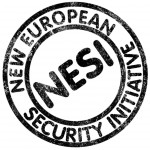




Geen opmerkingen:
Een reactie posten